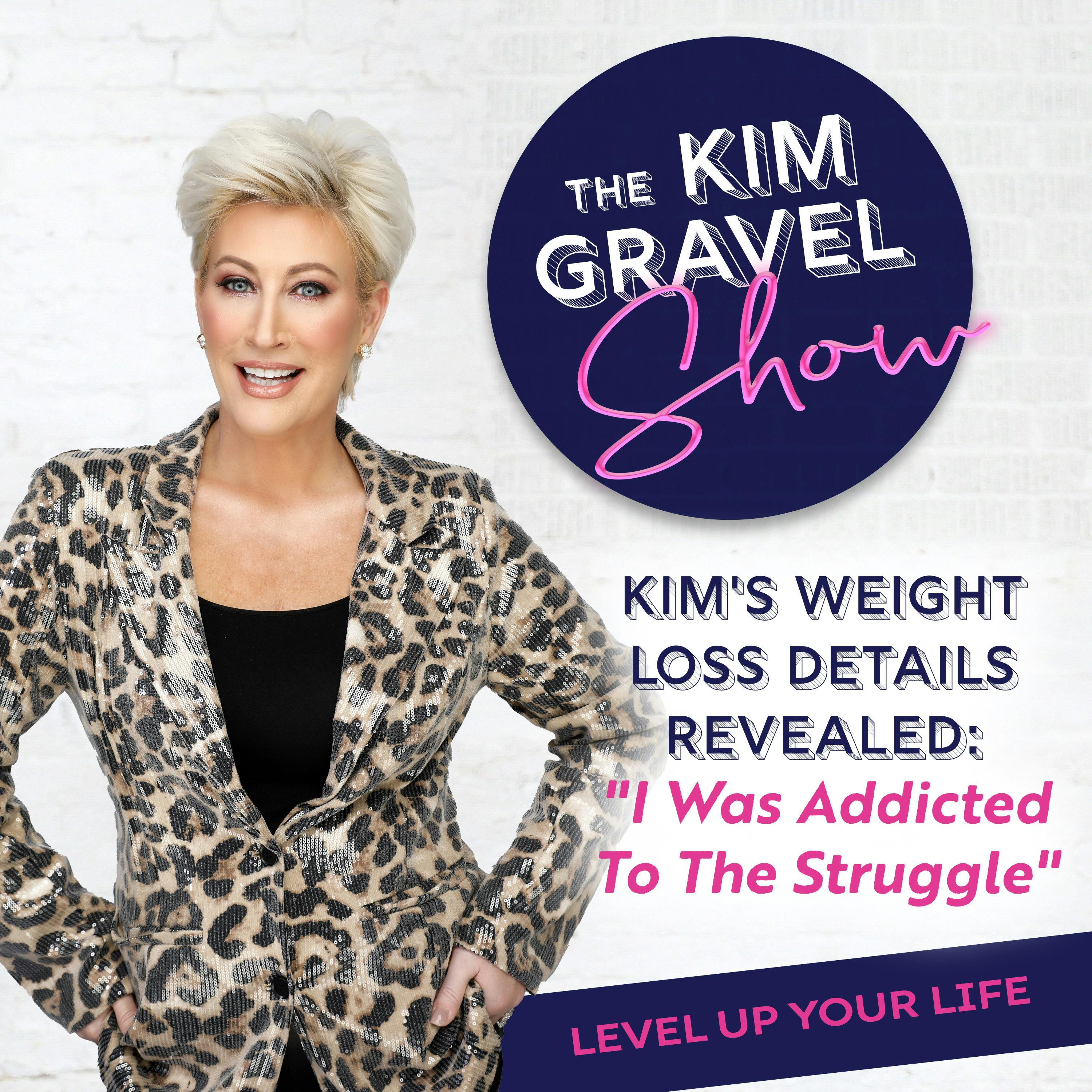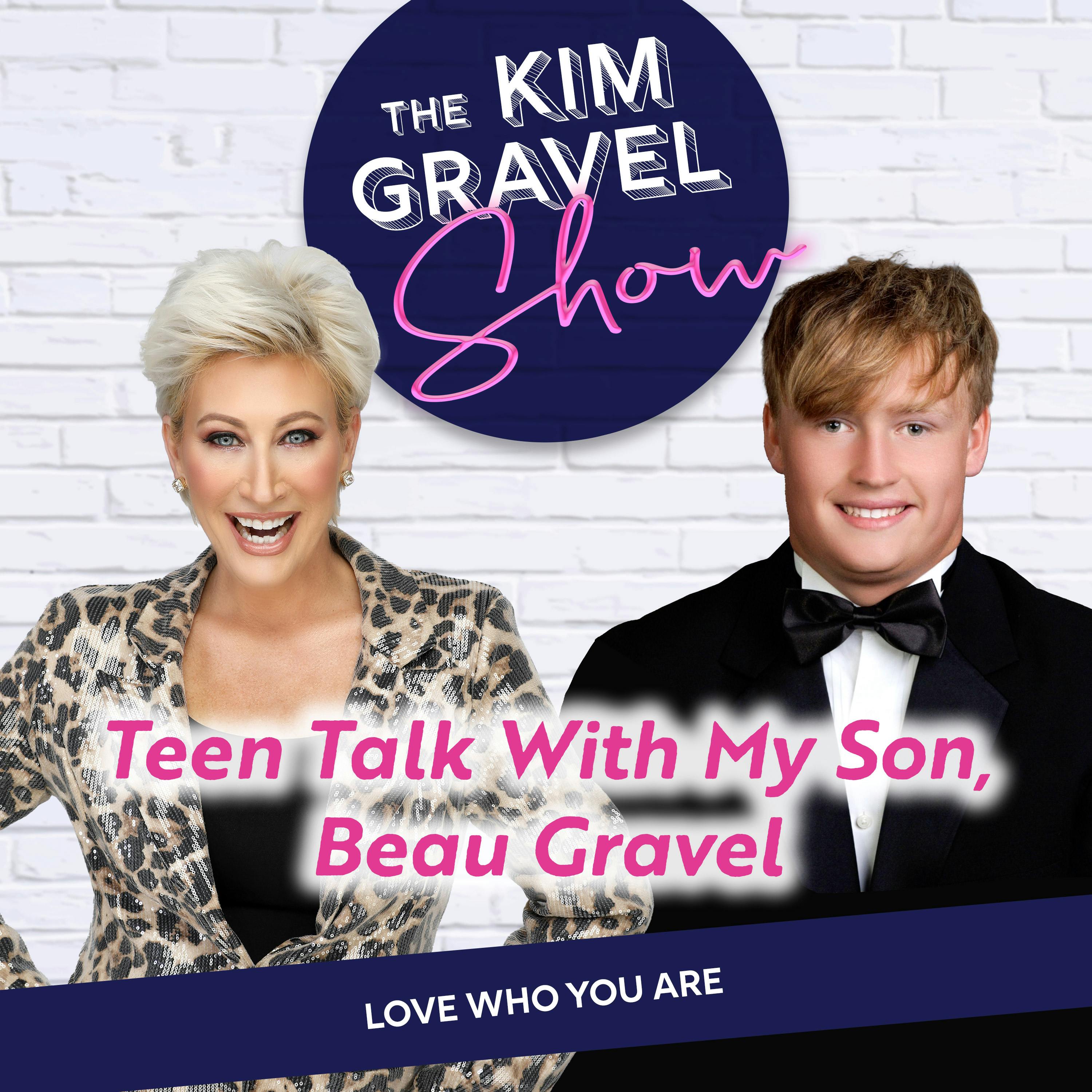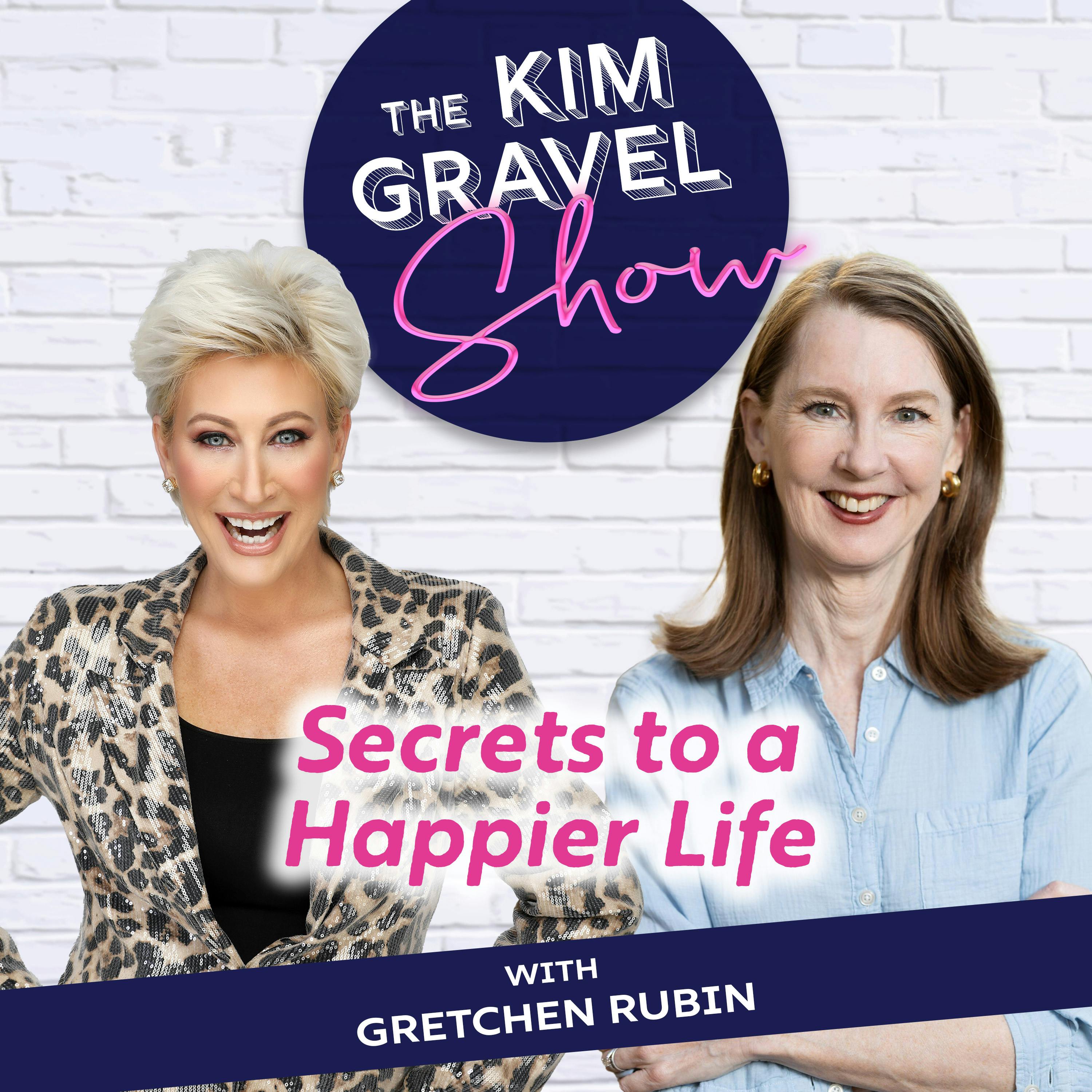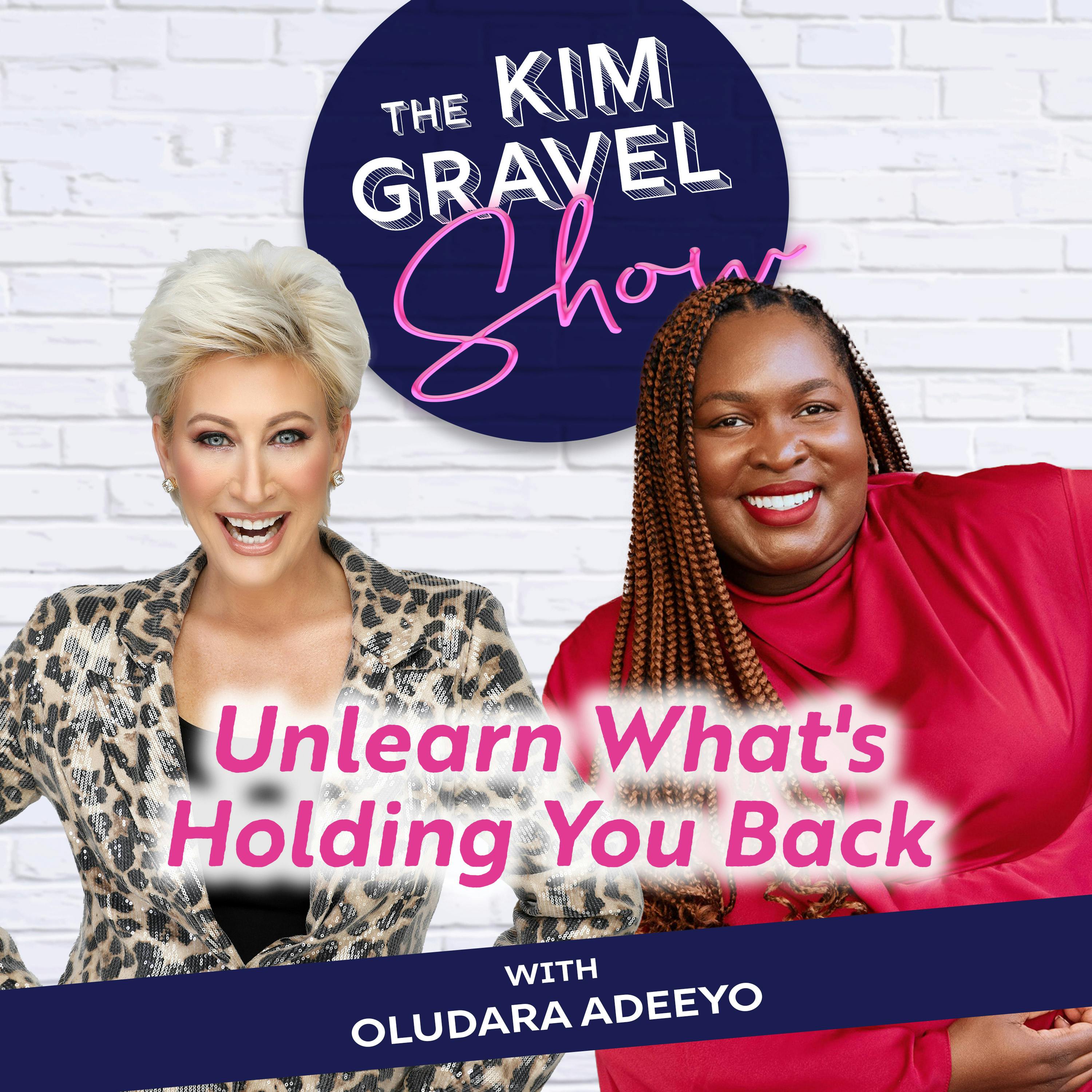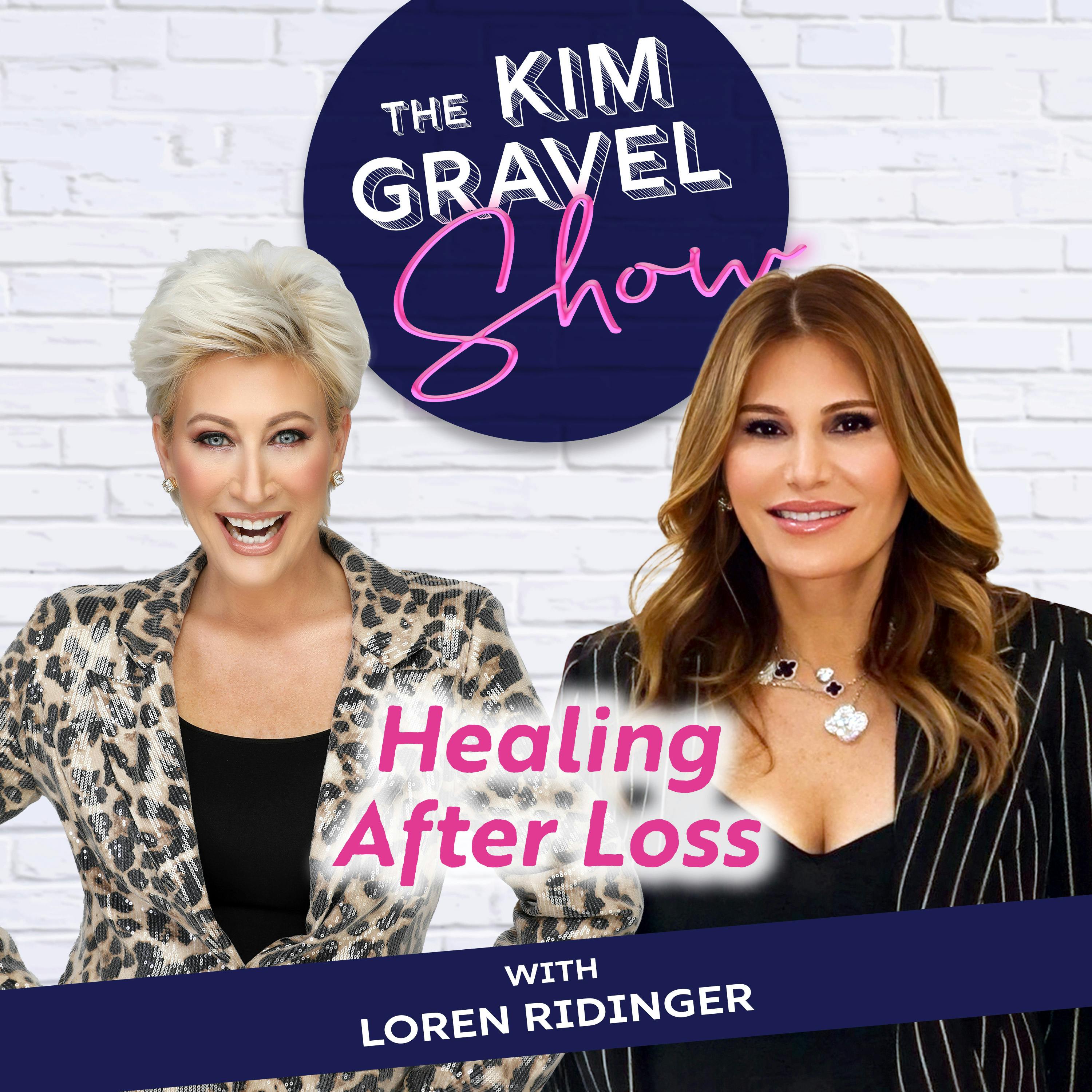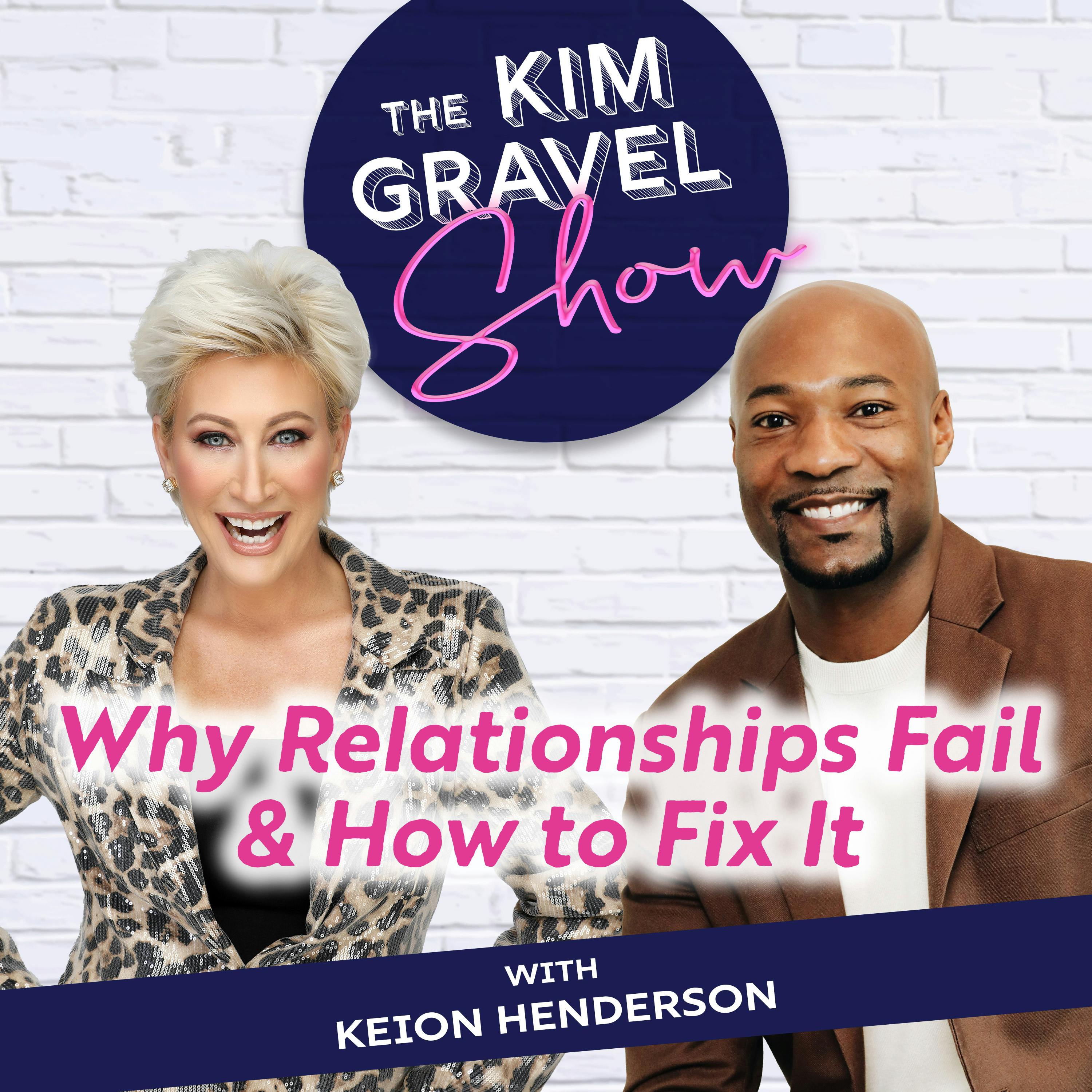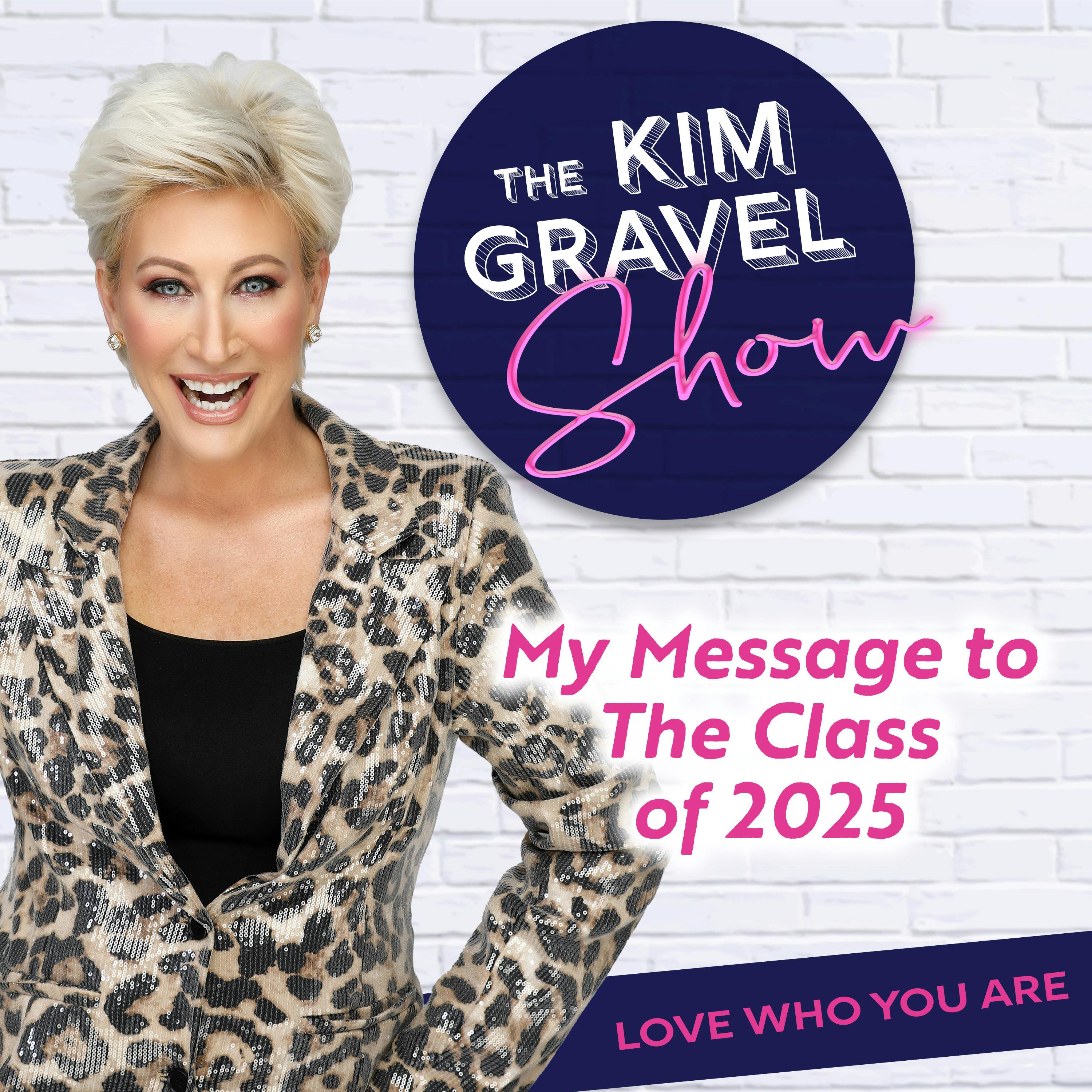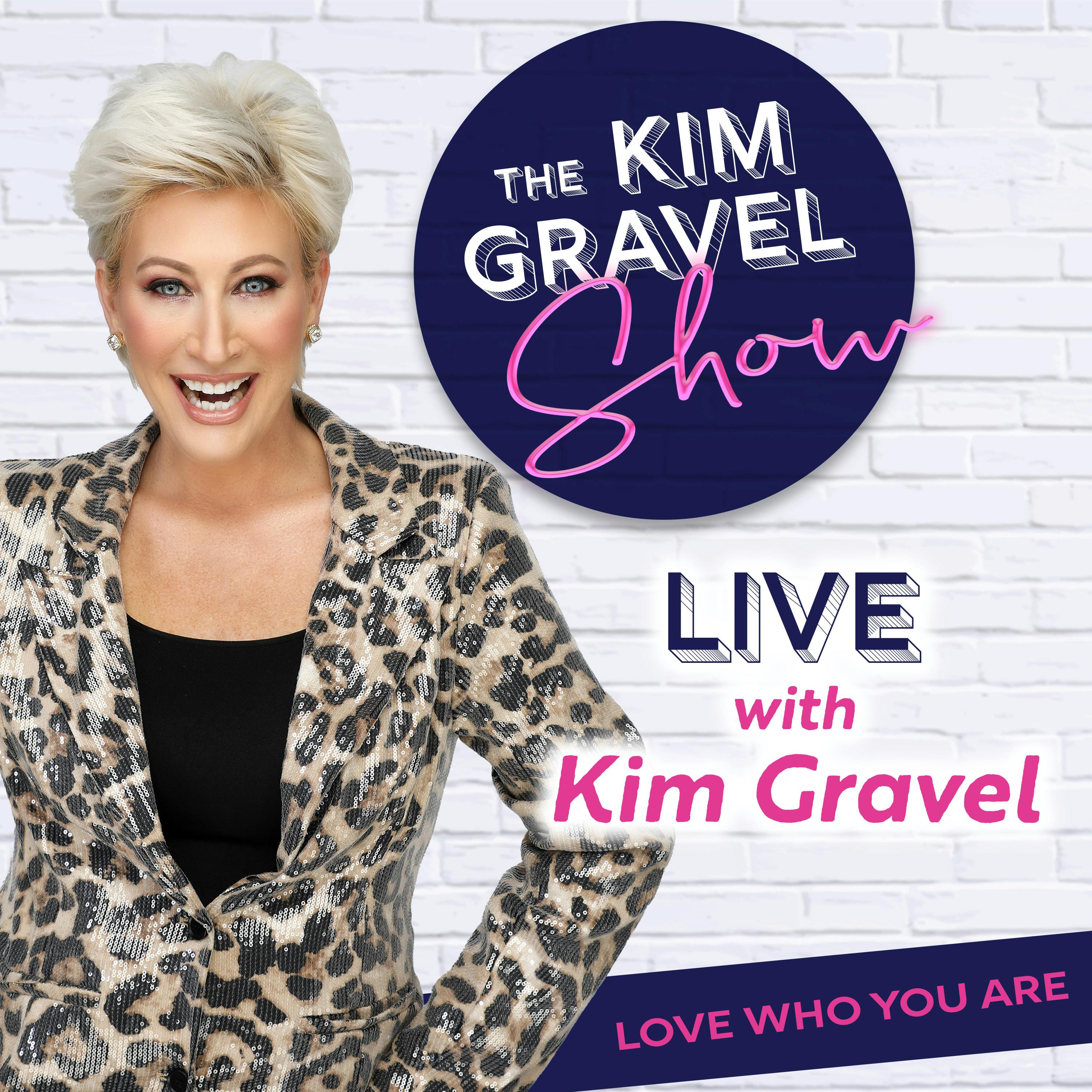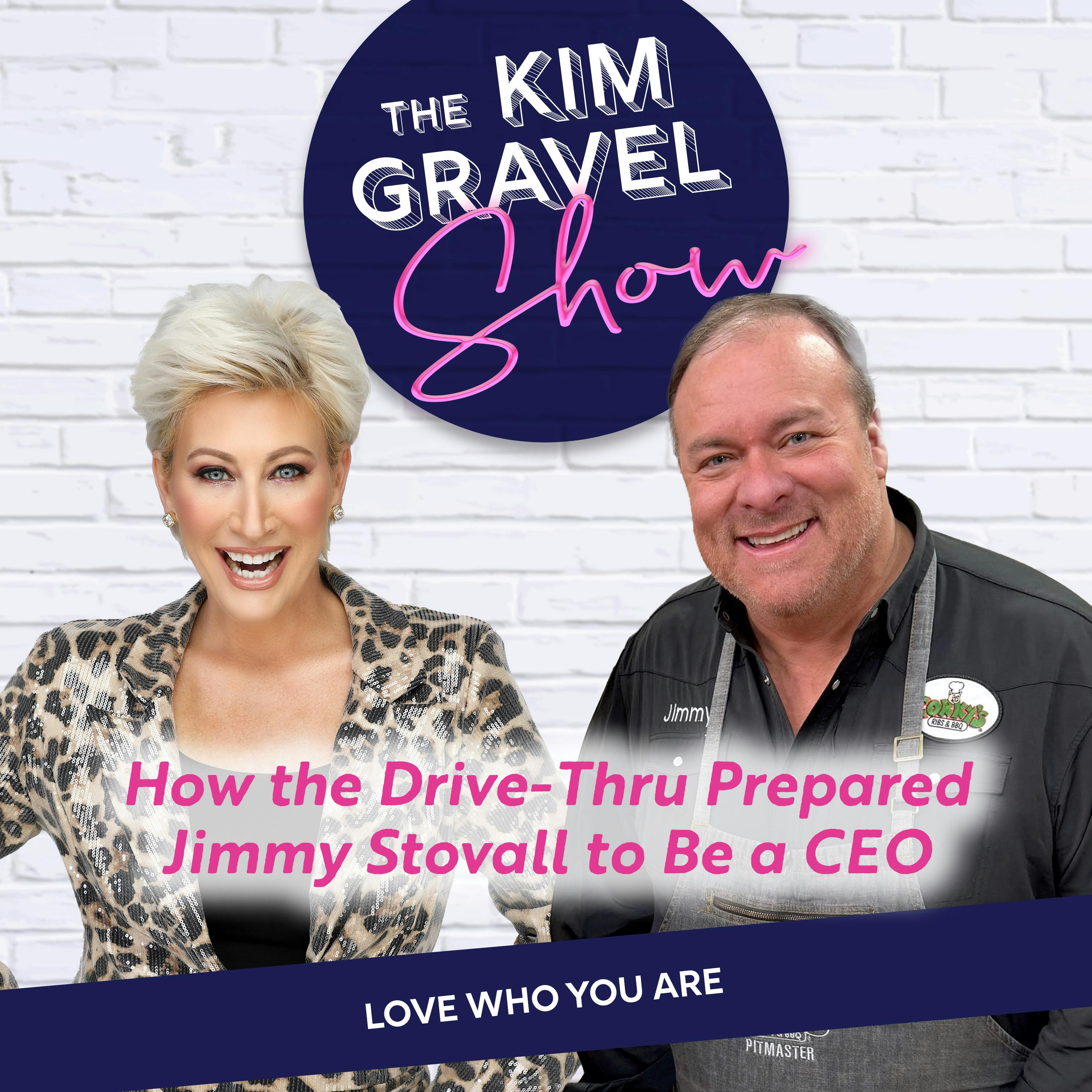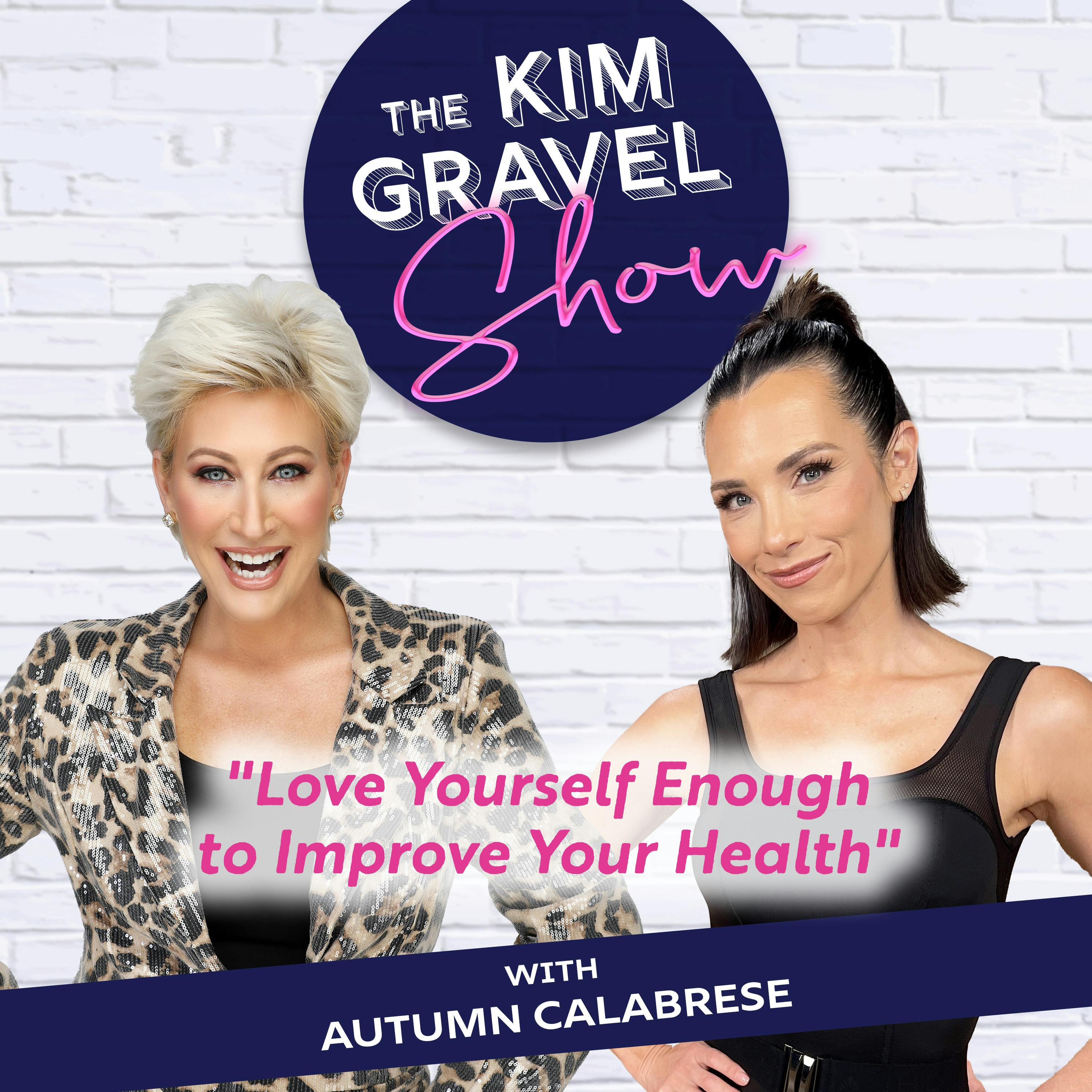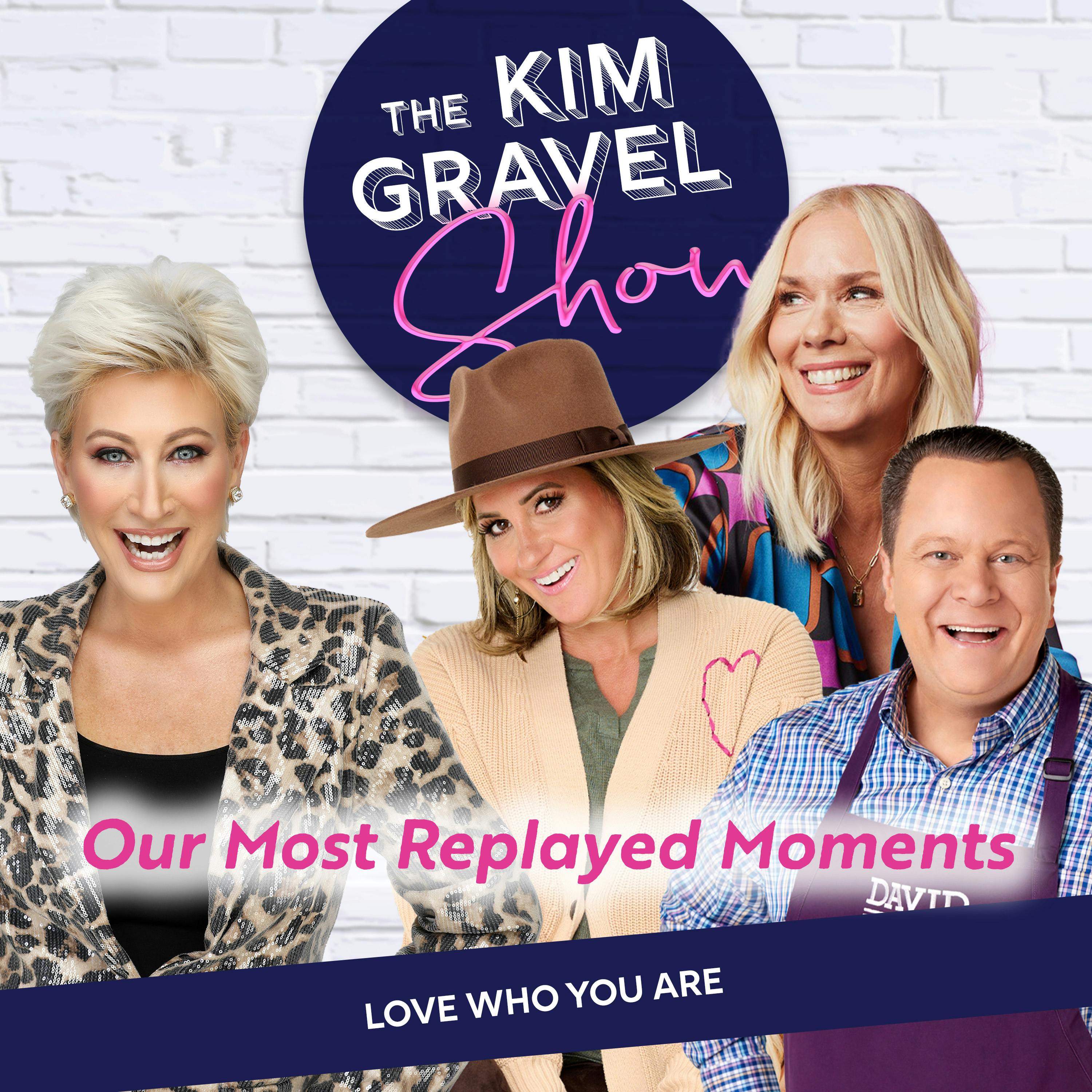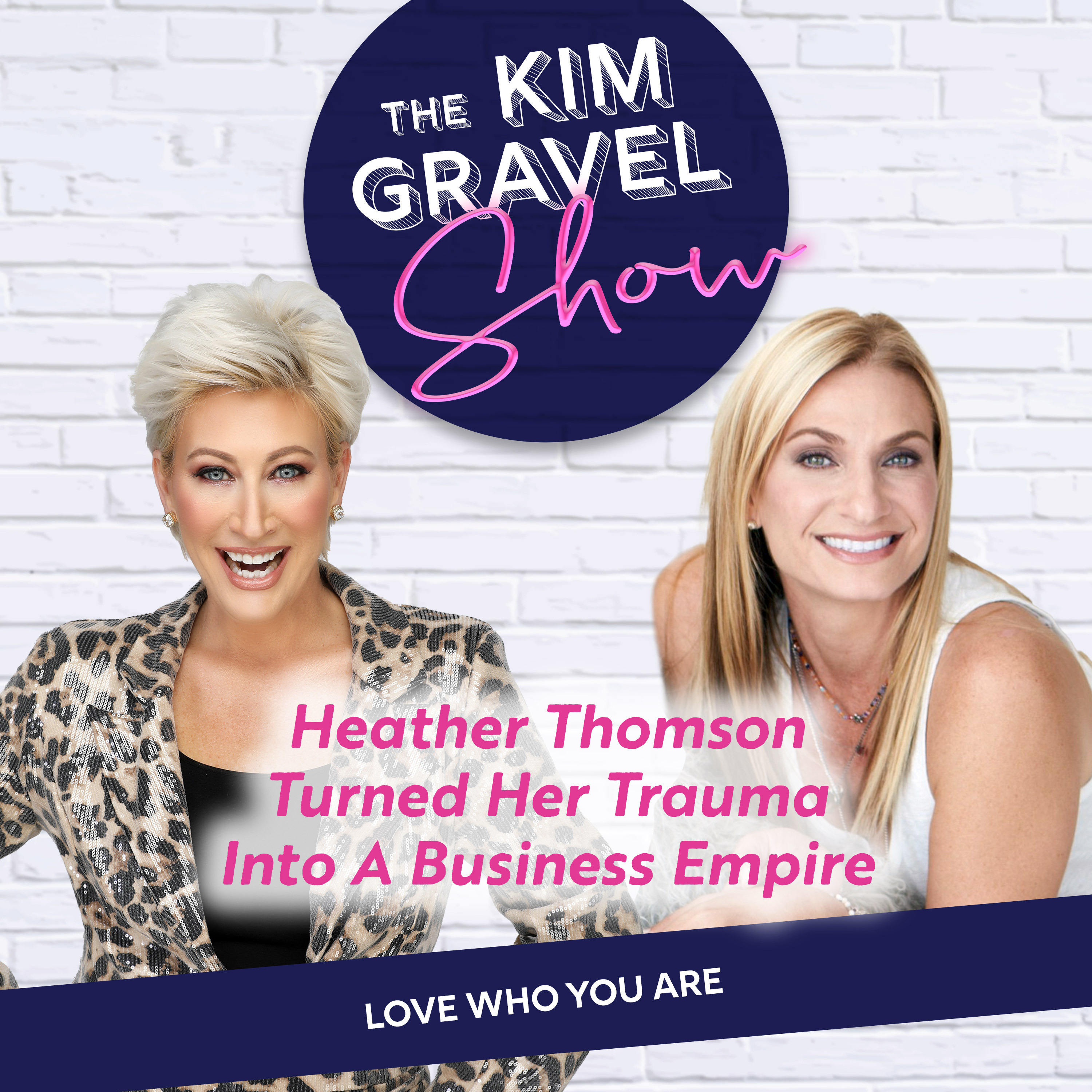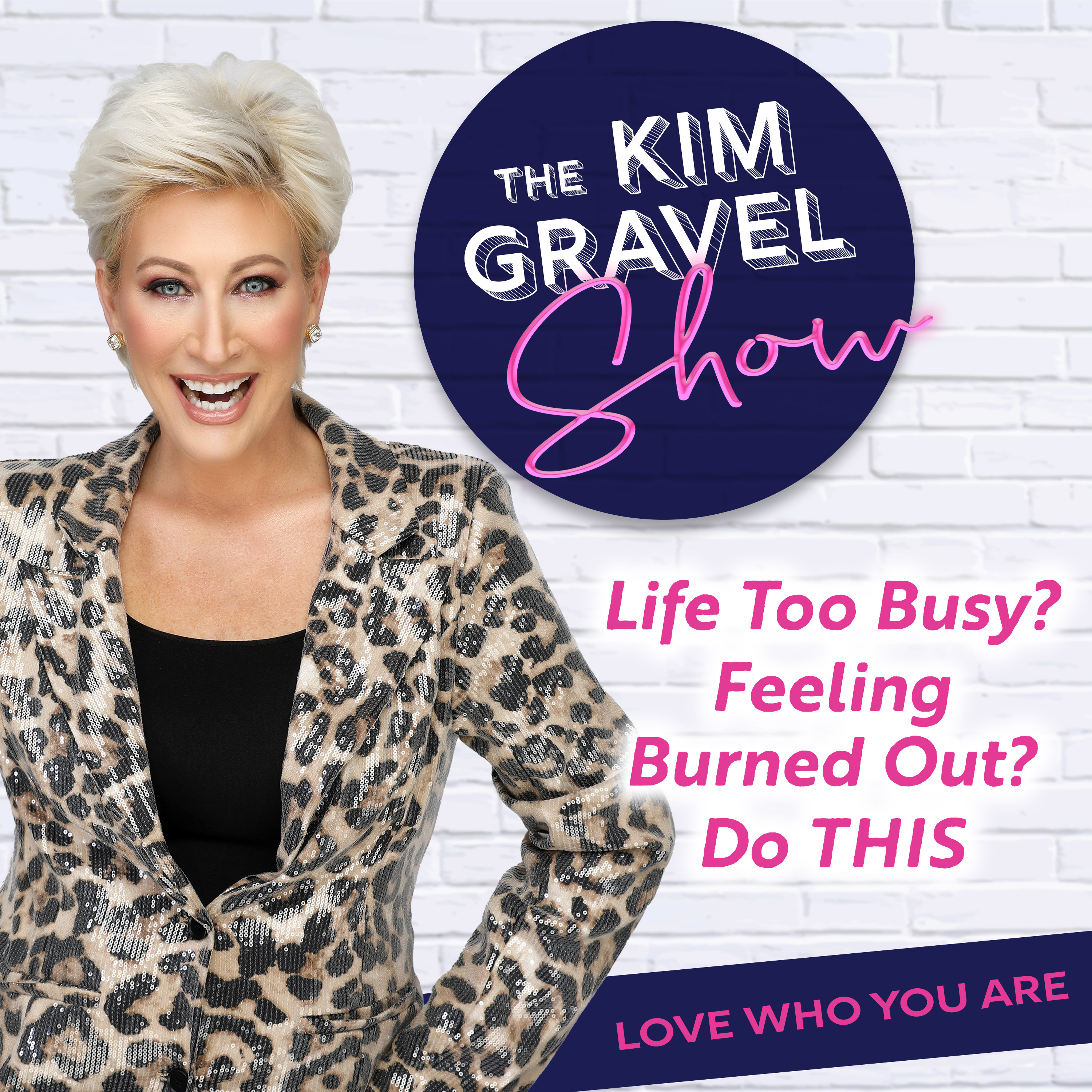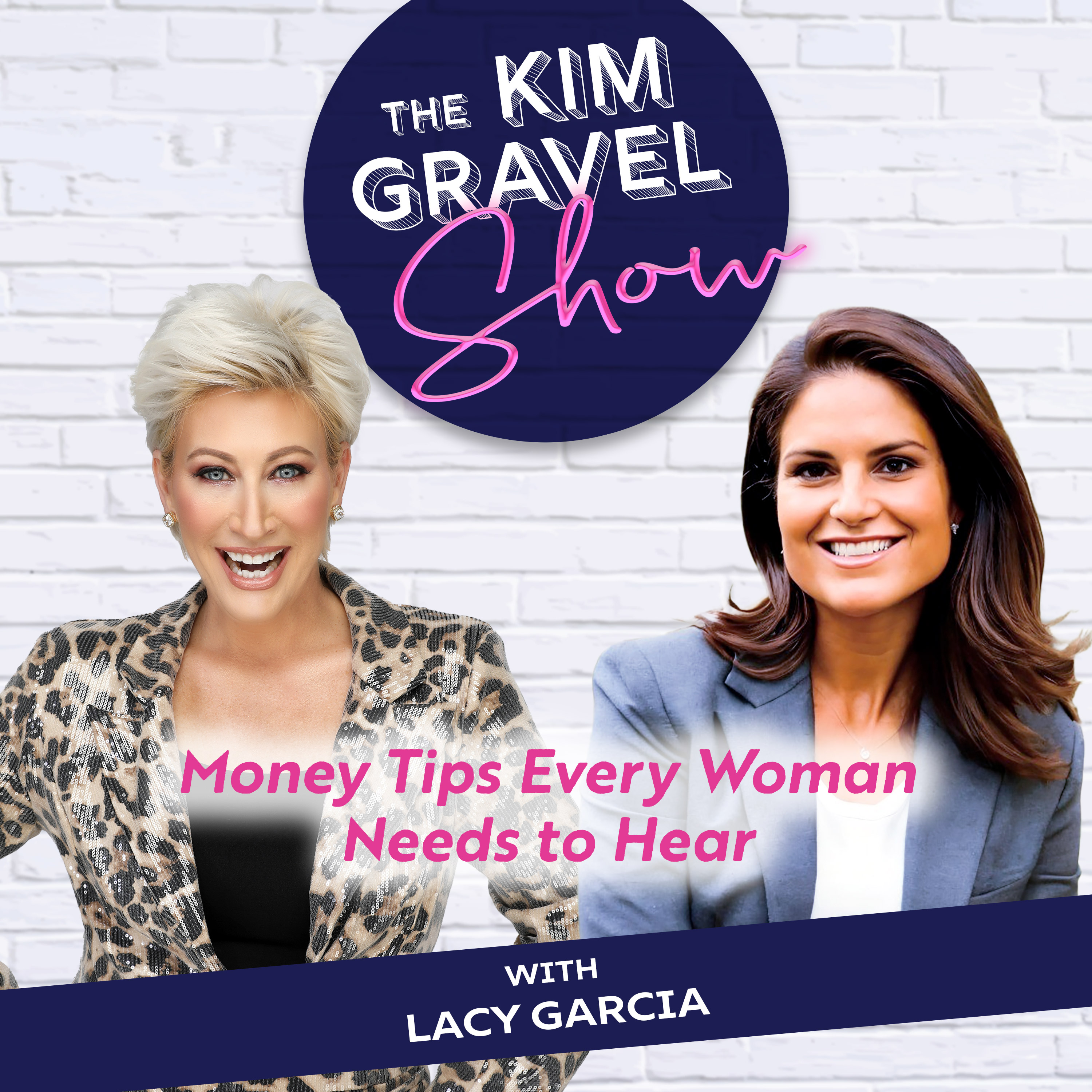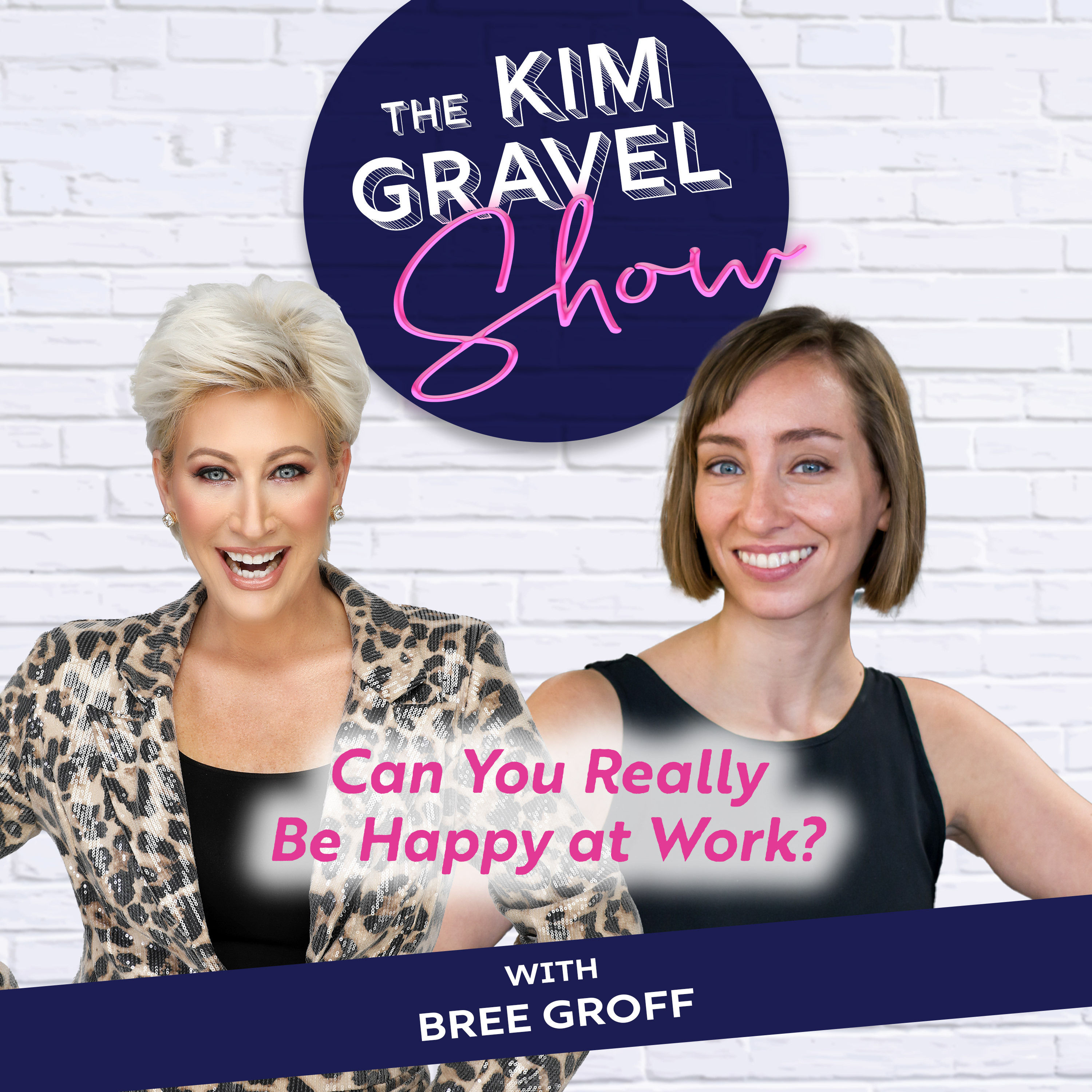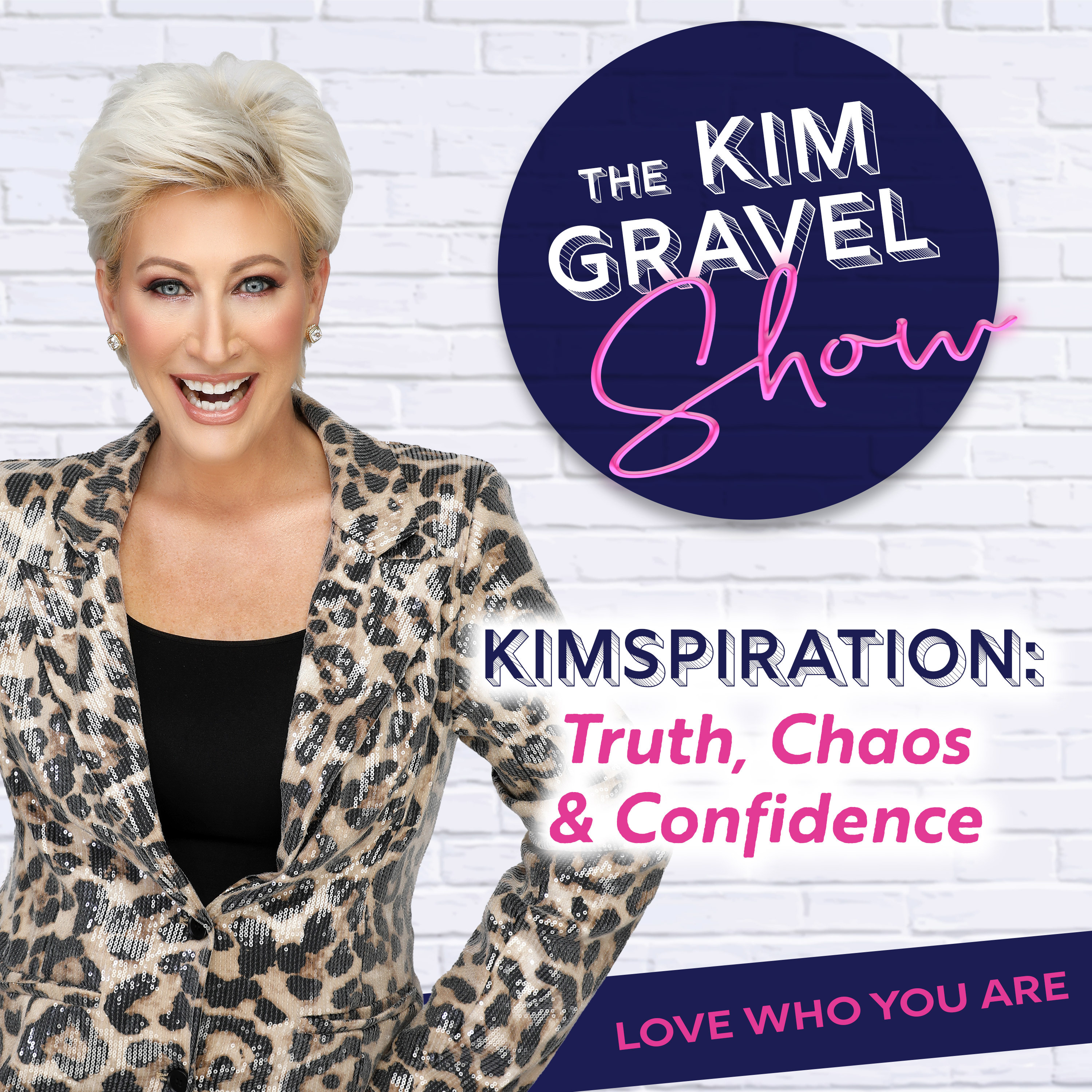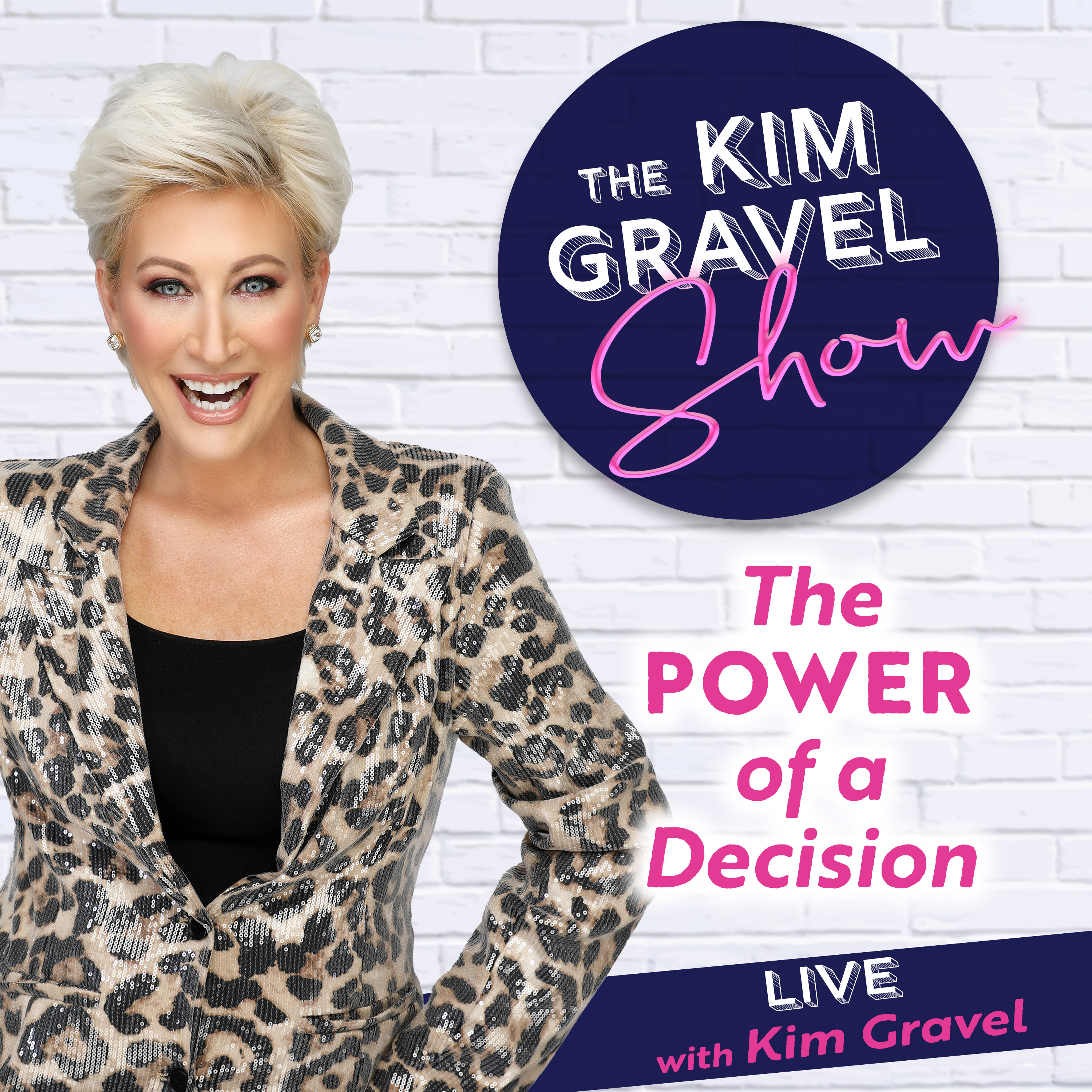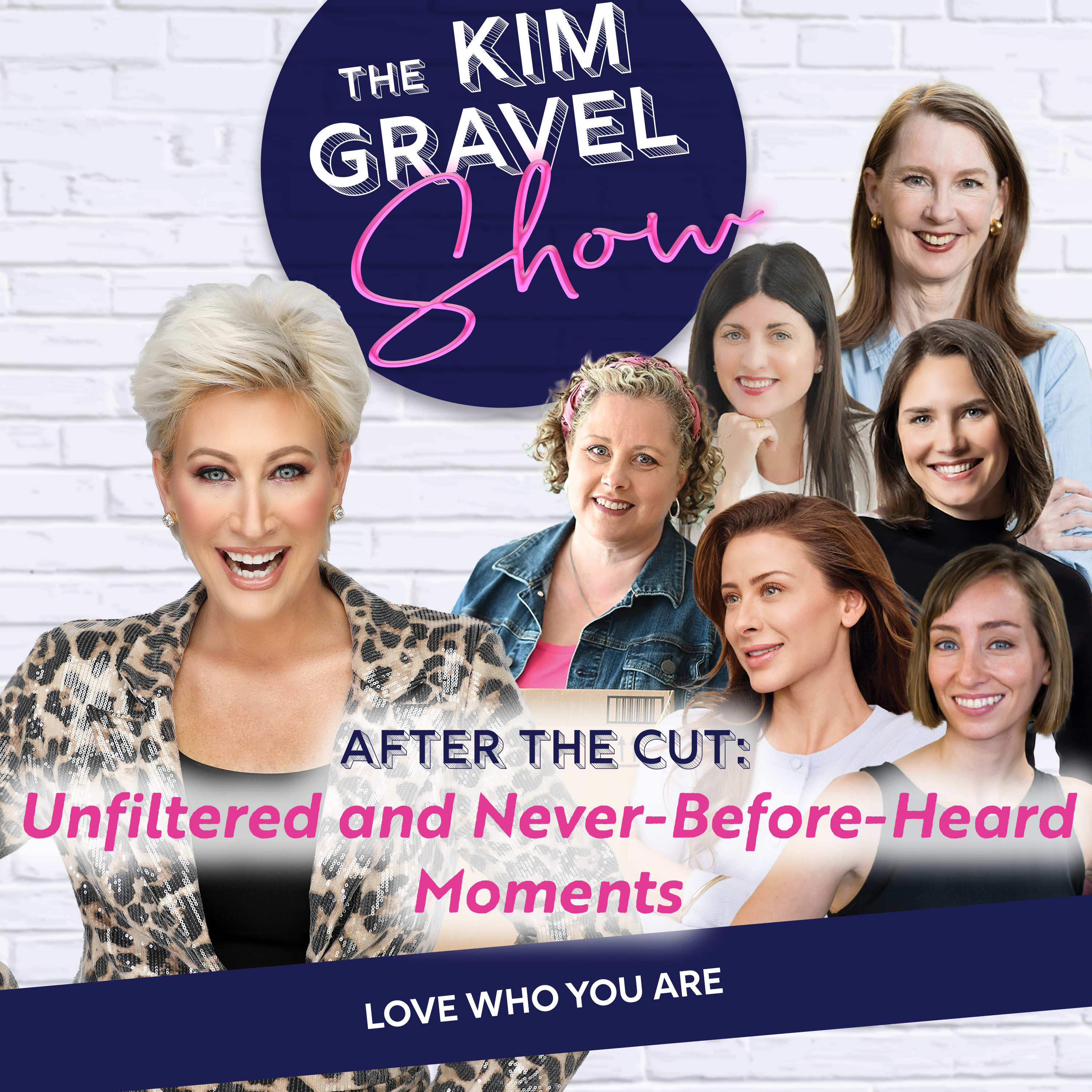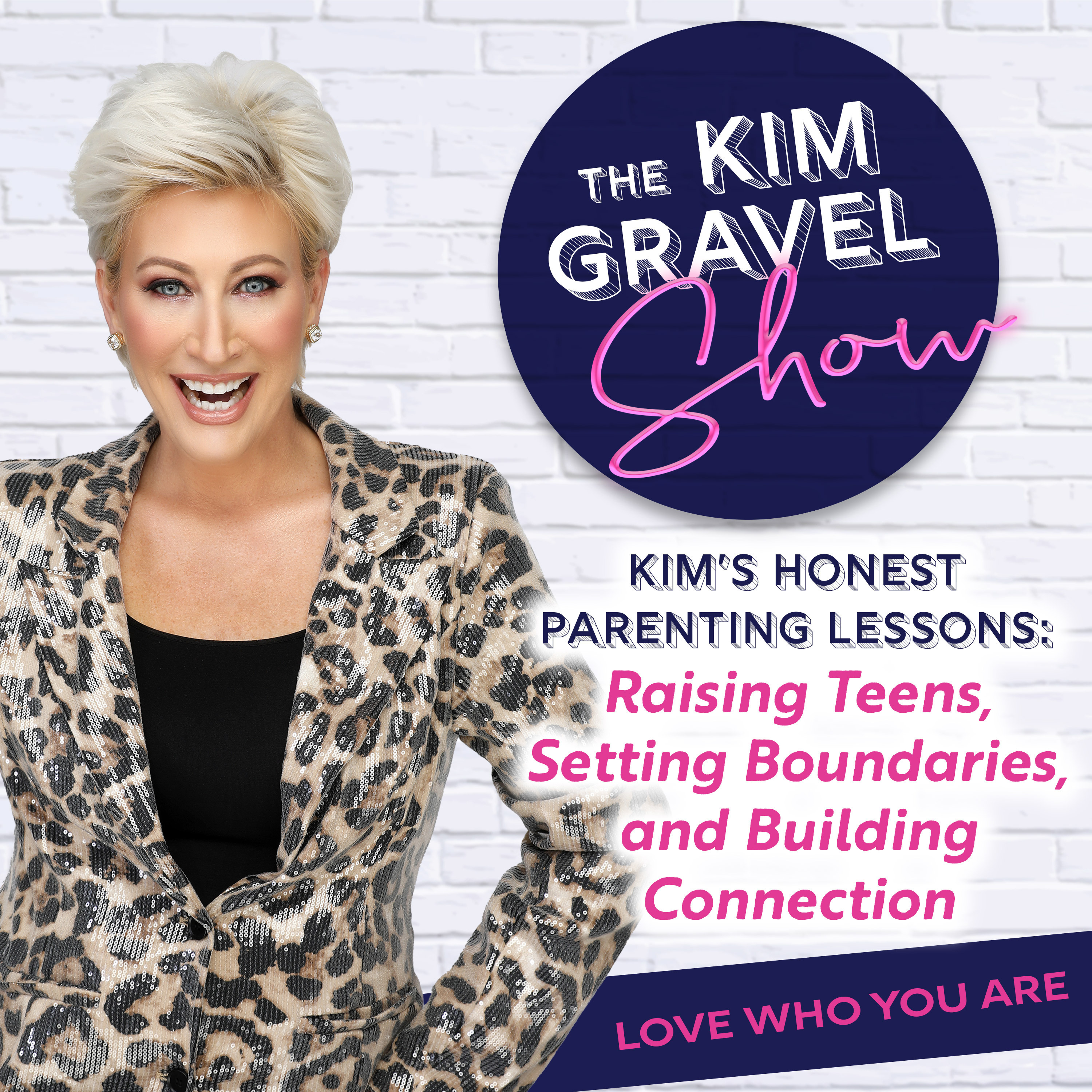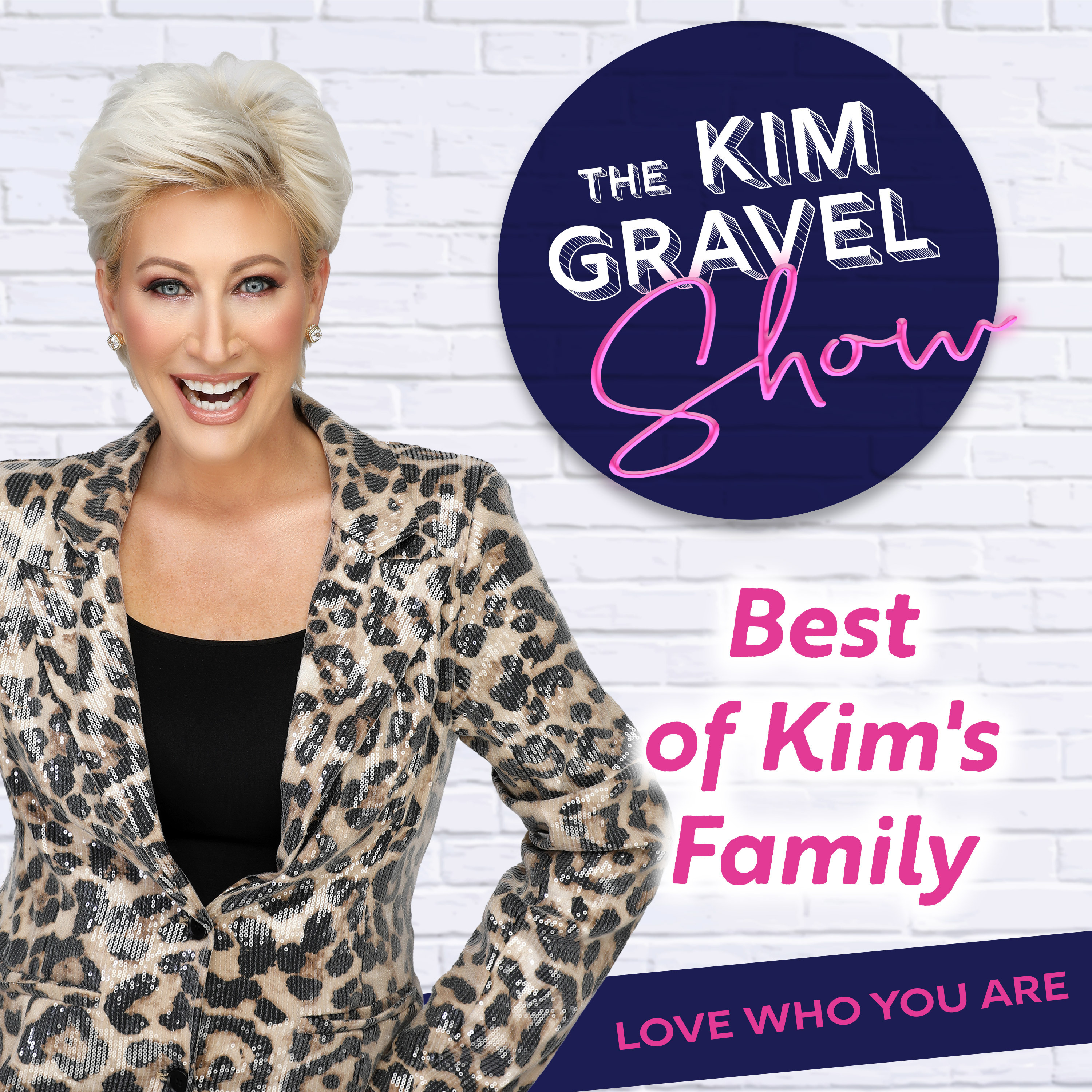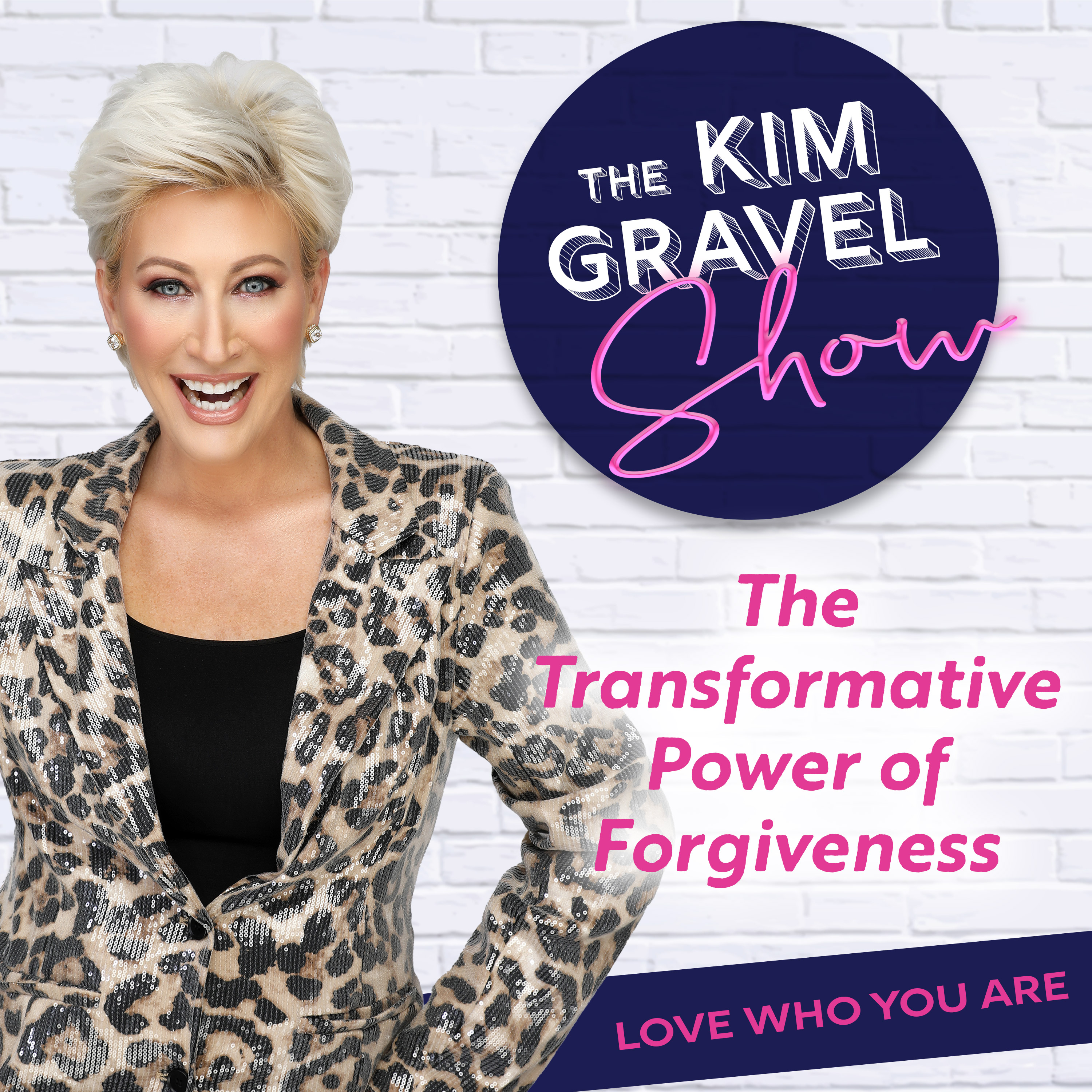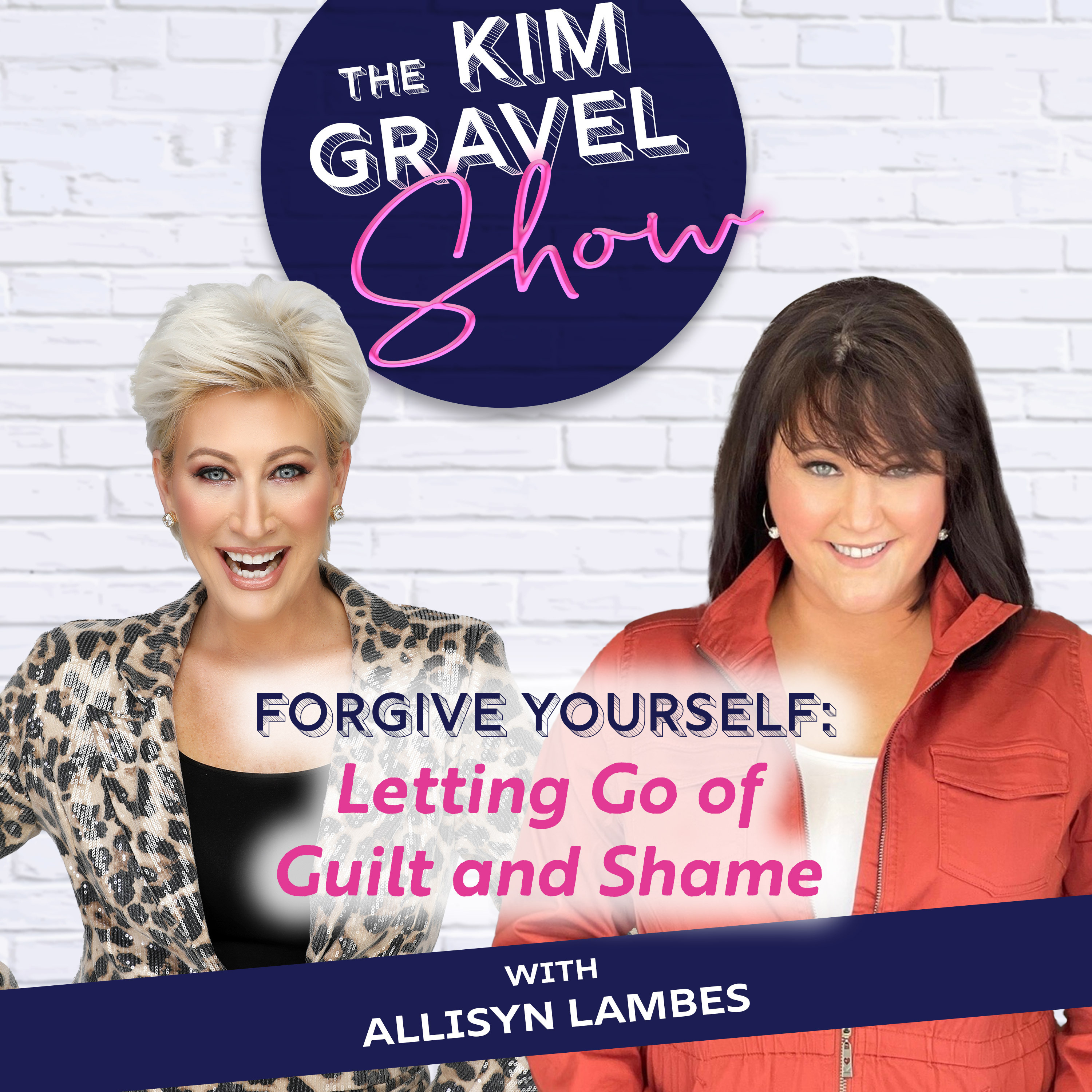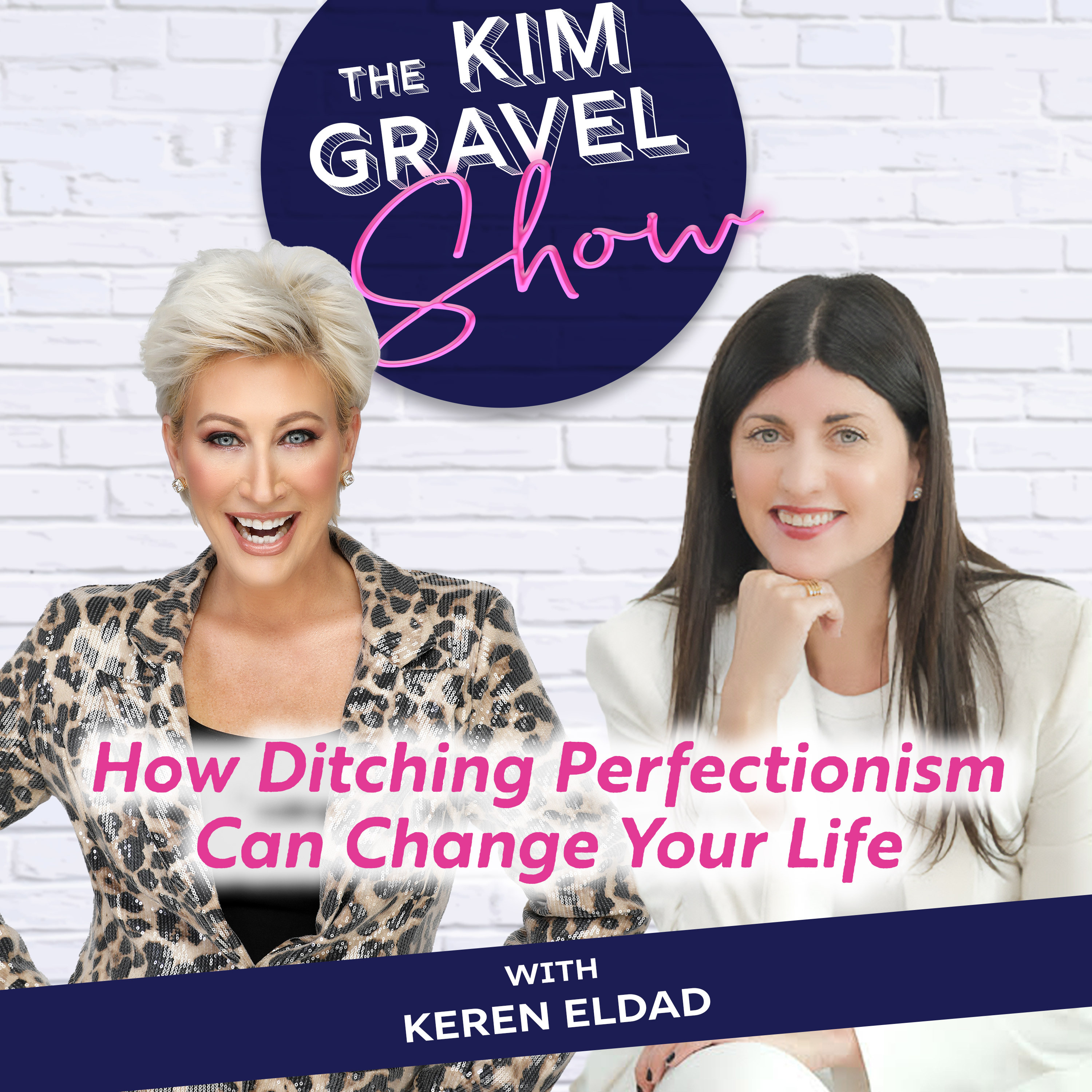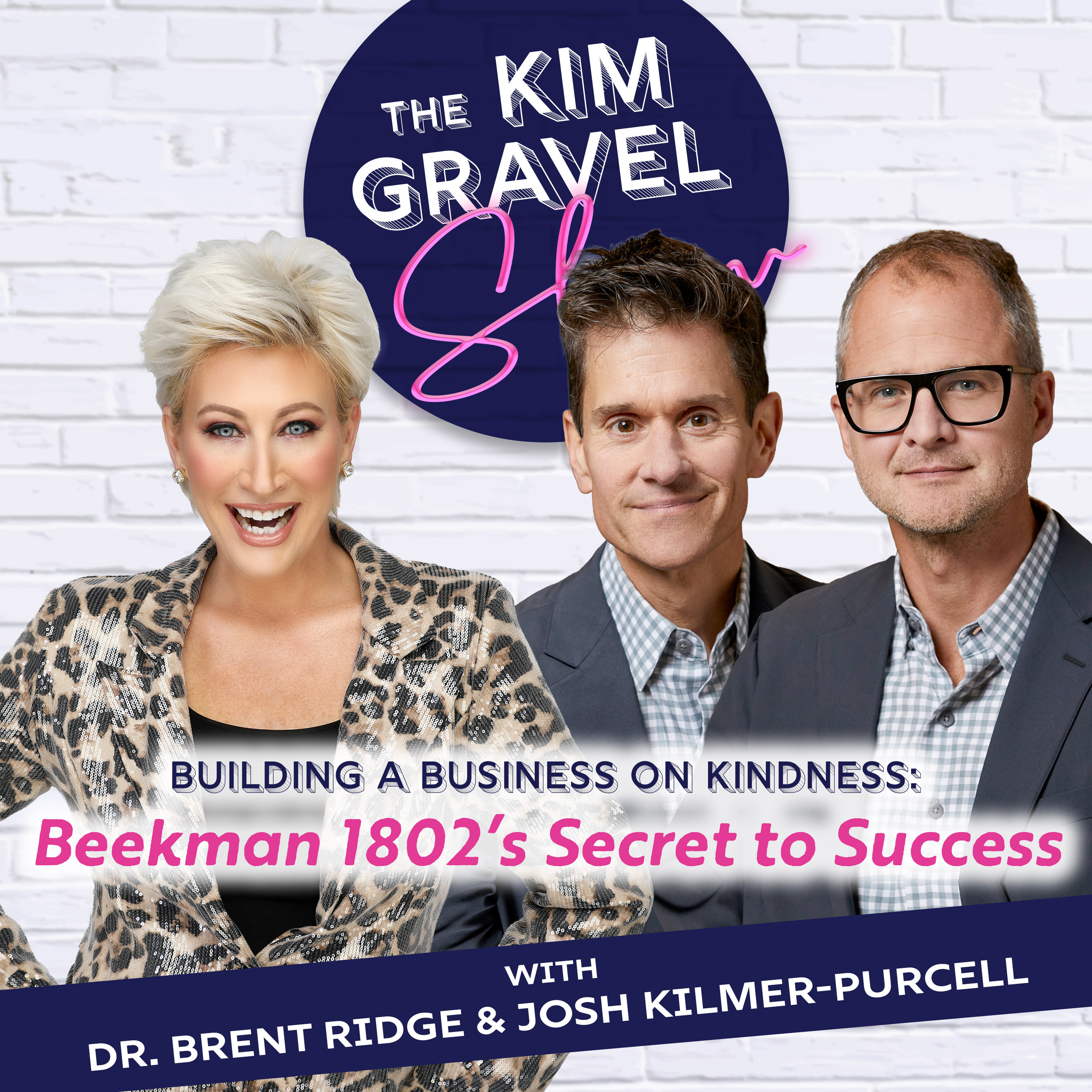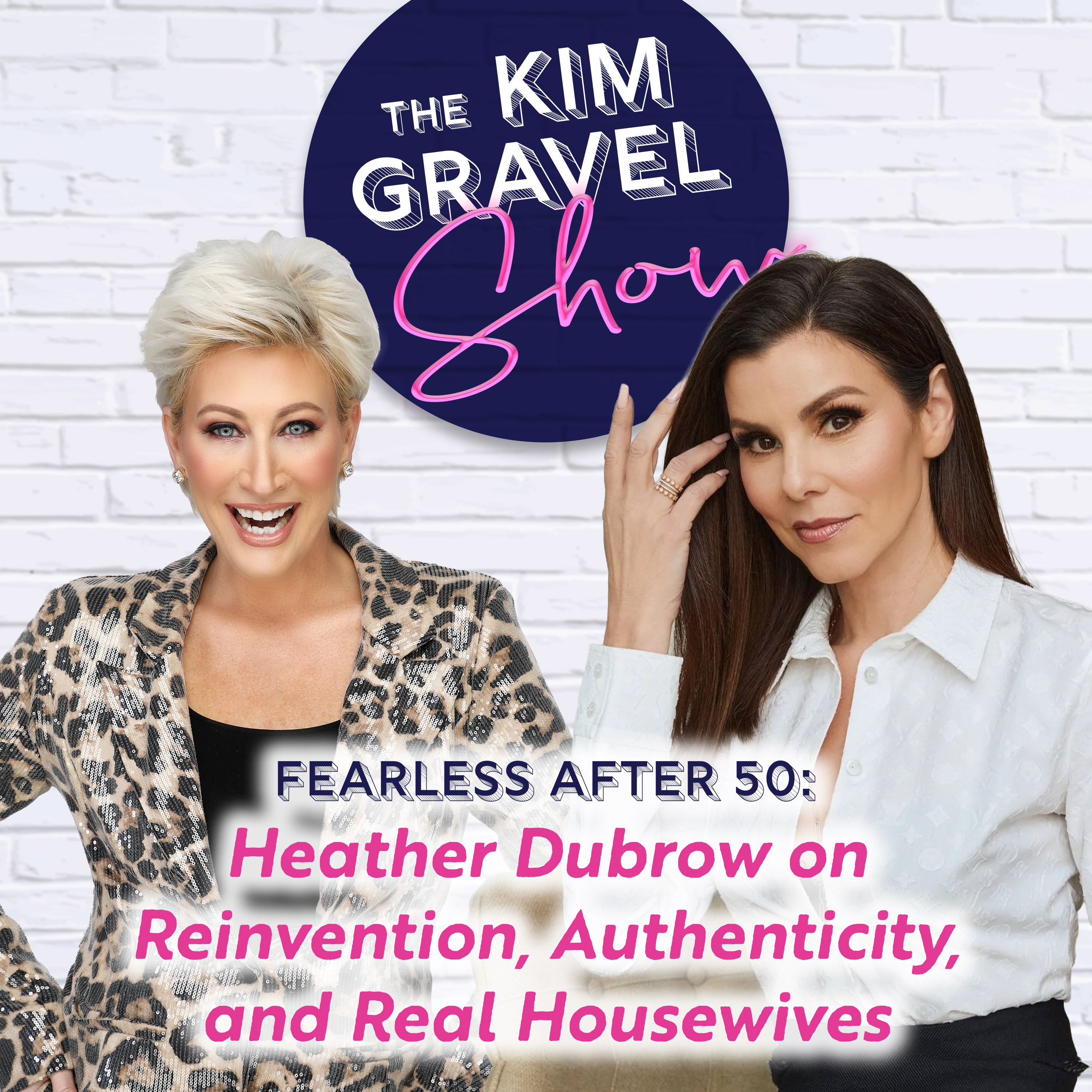What's Your Money Personality & How to Change It with Shannah Game

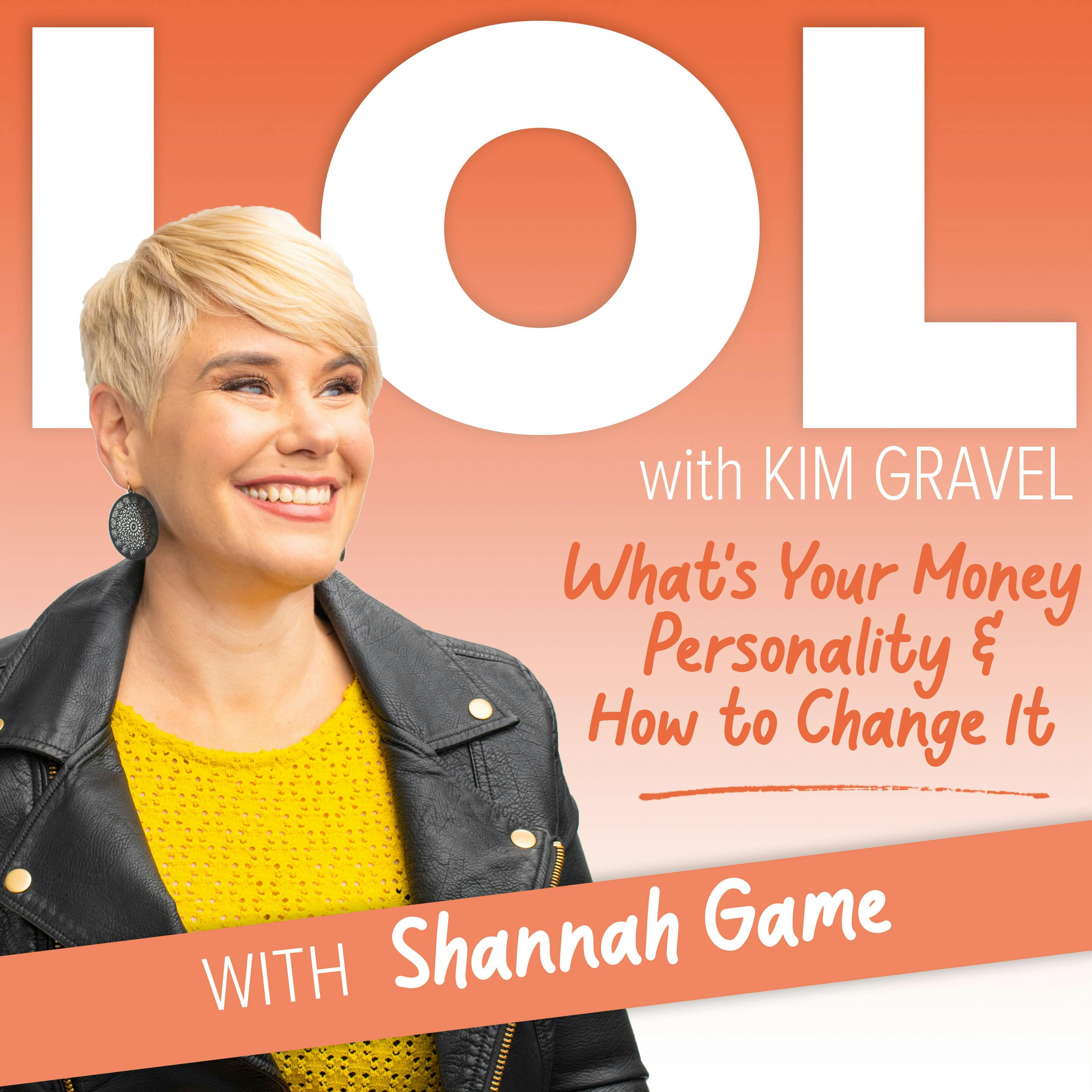
This week we’re talkin’ money, y’all.
This week we’re talkin’ money, y’all. Shannah Game is on LOL and she has this fresh, emotional, and down the earth way that she talks about money that I know you’ll love. Shannah is the host of the wildly successful podcast, Everyone’s Talkin’ Money, and she has a passion for helping people alleviate suffering, and anxiety around money. So buckle up, and let’s spend out loud, this week on LOL with Kim Gravel.
We're talking about:
- Our emotional relationship to money
- Your money personality and how it’s shaped early in life
- How to get past money trauma
- What is "your money number"
- How to craft a money vision chart
- Shannah answers your money questions
- Why "budget" is the wrong way to think about your spending
Make sure to tell a friend about LOL with Kim Gravel!
Connect with Shannah Game:
Everyone's Talkin' Money Podcast
Connect with Kim:
Our website is: www.lolkim.com
Learn more about your ad choices. Visit megaphone.fm/adchoices
*This transcript was auto-generated*
Kim Gravel: When I tell you my husband's cheap, we go to a restaurant. We love to go to eat. We have to all order water, but one person. And so like if one person orders a sweet tea or a Coke or what have you, and then we, it's done. It's a communal, it's a communal coke, so everybody takes a swig of it. So by the time it gets to me, it's basically backwash.
Hey, ya'll. Welcome to LOL with Kim Gravel. I'm Kim Gravel, your host, and this is a comedy podcast for women where we laugh about all the messiness of life and we're gonna turn that mess off into your message of confidence and hope. See, my mission is to, to encourage everyone to lift y'all up. And this show is about how we can embrace our real, authentic, true selves and laugh about the.
That life throws our way. So if you're ready, I know I am. It's time to live out loud, laugh out loud and love out loud together.
I'm telling you it's gonna be a good show. Well, it's, I have mixed feelings about this show.
Zac Miller: Why?
Kim Gravel: Because it's about money. And you know, I'm married to the cheapest man in the free world. My father is very thrifty. . I mean, I could tell you stories that would make your hairs curl . We are really, they, those are the two cheapest men.
And people say, well, they just frugal and thrifty. I'm like, Nope, they're dog dirty down low, cheap.
Zac Miller: What is the difference between being cheap and being thrifty?
Kim Gravel: Thrifty is coming up with creative ideas and ways to save a dollar, you know, you know, get a good deal. Cheap is. , it can get a little low ball.
Meaning like, my husband doesn't do anything and just offer like a thrifty price. It's always like dirt bottom, dirt cheap price. It's, you know, it can be insulting. Do you know what I'm saying to people?
Zac Miller: It's like it's affecting your quality of life, basically. Is that it
Kim Gravel: well, I'm used to it. I'm used to it.
I think secretly, I've really looked for someone like my dad. I just wasn't real specific about like, oh, the podcast, skip. I'll say We're, we're going, we're all going to Target. Is dad going. That's what he'll say. Is dad going? I'm like, yeah. I'm like, ah, we're not going. Nah, I forget it. Like if dad goes to Target , like I said to my son Bo, he said, mom, why should I go to Target with Dad?
It's just basically walking around and looking at stuff, we're not gonna get anything. . Isn't that horrible? That's so funny. So like recently it was Thanksgiving and I sent him out to get some grocers. I have to say, get the heavy doodle duty rentals. High in a aluminum full, or he'll come back, he'll go down to the Dollar Tree and get the most flimm.
I mean, flims is, but what he'll do is he'll go get. Aluminum full from the Dollar Tree cuz it's a dollar there. He'll drive all the way to Target to get to marshmallows cause they're 30% off. Then he'll ride out there to Publix and get the, he, he, he, he spent more gas than he would just buy it all at Publix
Zac Miller: Right. And it took him like two hours too probably.
Kim Gravel: But it's, it's, it's that, it's, that's cheap.
Zac Miller: I don't think I'm cheap, but my kids are sort of in this phase where like they, we go to the, and they're just like, can I have this? Can I have this? Can I have this? Can I have this? Can I have this? And it, it's impossible.
Kim Gravel: It's perfectly normal.
Zac Miller: Yeah. Yeah. When does that end? Kim has that.
Kim Gravel: Never .Buying things give us such a high, you know, but it's like my kids' things like you're, what are they wanting at the store? Bubblegum cookies,
Zac Miller: like everything. We're like adding things to our daughter's Christmas list, right? So it's like when we get at, this is a Christmas list, so now it's like the weirdest like candy thing that's like, you know, the like li basically liquid sugar or whatever is like on the list.
Kim Gravel: Okay, well then when they get older it's like phones and $500 pair of tennis shoes. I said to my son this, I said, are you 500 on drugs? He goes, what do you mean? I said, what kind of drugs are you on to think I'm going pie a pair of $500 tennis shoes for you? And then my youngest is like, mom, I want Gucci slides for Christmas
I'm like, you live in Bethlehem, Georgia. You go to a local little school down here. Ain't nobody got no Gucci up in here. Oh my gosh. And if you think I live in a Gucci town, I mean I, you're lucky to have, you know, Nucci or Ucci, you better get some knockoffs cuz you're not getting no Gucci slides.
Zac Miller: You, you know what, just have Travis get some like materials together.
He could do Gucci. Just gluing them. Glucci .
Kim Gravel: But I mean, I mean, look, I, I get it, you know, but I'm just saying Gerd your loins for your kids because the, the, the, the expenses and the, and the toys and the stuff gets more expensive and more expensive and more expensive.
Zac Miller: I'm just waiting till we're out of like paying for daycare cuz that's gonna you know, 10 plus thousand dollars I can get back.
Kim Gravel: I'm telling you. And you got two weddings. You better start saving your money. It's a good thing. We have our guest on today that's, . My guest today is Shannah Game. She is a certified financial planner. She has her MBA from Pepperdine, a modern day money strategist, wellness advocate.
She has a top financial podcast called Everyone's Talkin' Money that has over 23 million downloads, and her passion is to help alleviate pain, suffering, confusion, stumbling box anxiety. Money y'all. Put your hands together for Shannah Game. Welcome, Shannah.
Shannah Game: I love it. I mean, can you just follow me around all day long.
Kim Gravel: Isn't that, isn't that fantastic?
Yeah.
Shannah Game: Yeah, I love it. I, I need that like anytime I walk into a room, I mean, come on you.
Zac Miller: It's yours. It is yours.
Kim Gravel: Yeah. We'll give it to you at the end. It's, you can have it. You have done so much in the world of finance and, and I just wanna say straight up before we hop into it, cuz I have listener questions for you.
I have, topics I want to pick your brain about when it comes to the financial money mindset, but, Tell me how in the world you became this financial expert and money expert.
Shannah Game: You know, my journey really started, when I was a kid. I mean, my dad's been in the financial industry his entire career, so we kind of grew up like.
You know, we had some conversations around money. Like we kind of learned this idea of wealth and investing, but then other things we didn't talk about and those were the things that were like kind of my stumbling blocks, . But when I went to college, I started what was at the time the first National Student Film Festival.
and I ran that for about five years. We raised about a quarter million dollars every year, just myself and like three other col college kids. And so that was really where I developed like resourcefulness. Like I, you know, I learned how to manage money, manage a budget, like all these things that I, you know, I.
Consciously aware that they were like kind of stacking up his skills and so I did that. Yeah, I love that. That really became like my entree point into, you know, all things money. I mean, I tell people that I've been an entrepreneur my entire career that I'm like allergic to fluorescent lights. And people think I'm crazy.
I'm like, no, I'm serious. Like I'm, I'm not a corporate person. Like I'm a just an ideas person. And so, you know, after I got my MBA, my dad had a, had a smaller company and he was like, ah, I'm kind of bored, like working by myself. Do you wanna come and just like see if you like this stuff? And I thought, oh, okay, whatever.
I had sold my film festival and you know, I was just kind of, you know, I don't know what's next. And so, You know, like day one we started working with people like a hundred million in assets. And so I got to see like really behind the scenes. And, you know, we worked with people like just outta college all the way up to, you know, people with massive amounts of money.
And I started to really see the similarities like that existed between all people, like regardless of age, demographic, what they made. And so like my creative juices started to turn on again and I was like, okay, I wanna do what I love to do, which is, you know, become this expert, but then also like figure out how to creatively like package this and, and share this kind of with the world.
So. , that was really like the, the, you know, short Cliff notes version into, well, I mean, my journey to. .
Kim Gravel: Yeah. And, but I, I love talking about finance, wealth, beliefs about money, and money mindset because I think it's one thing every single person has in common. I think that that is, I always, I think that's a level set for everybody. Like everybody might have different cultures, different, you know, beliefs, different political affiliations, different, I mean, I could go on and on.
But I think one thing that we can all agree on is that we need money and we need more of it. . Yes. And we all have to learn how to manage it. Don't you think? So that's a Absolutely. That's a very unifying message. I'm serious.
Shannah Game: Absolutely. I mean, we say like, and we also say that money touches like all aspects of your life.
So it does, it's really hard to. anything in your day-to-day life where when you kind of peel the onion layers back, there isn't some something about money kind of sitting there. So, you know, I, I talk often on my shows. Something I'd be like deeply passionate about is relationships with money. Yes. And that's something we don't grow up learning about, we don't have the vocabulary for. But I mean, that is the complete behind the scenes of, you know, what's playing out every day and. Hindering our ability to do a lot of the things we wanna do.
Kim Gravel: Well, what do you, what do you talk about when it comes to relationships with money? Because you talk on your podcast and you, I've heard you speak about money, trauma, and let's talk about, I have a dear friend who had a situation in her family where they just couldn't manage money and it really has caused her.
To go the opposite way, she's actually very, very good with money. Cuz she learned a lot from their, their heartaches. Tell me, what do you mean by relationship with money?
Shannah Game: Yeah, so it's very complex, right? And for each of us it's a little bit different, but, you know, most of us grown up with,you know, beliefs about money, right?
So they say that our money personality is shaped by the age of seven. That's really when our, what unconscious mind Yes. Is shaped. So between the third trimester in, in our mother's belly to age seven, we're collecting everything about the world and money. So, you know, we're hearing things, we're seeing things on tv, we're seeing like interplay in relationship to people raising us, and that is all cementing this personality of how we approach, I say how we think, act, and feel about money. So, I mean, that's crazy to me. Like I don't remember like hardly anything before age seven. So to think that it is that impactful, that just really blows my mind.
Kim Gravel: I, I've gotta tell you, I can, I can, I totally believe that what you're saying.
I, I can relate to that cuz my father was always talking about how broke. I mean always. And I married a man the same way. It's very cheap. Zacwill tell you. And so my whole life I grew up think. . Oh my gosh, we are so broke. I mean, I would, I almost had a fear about being so broke. I thought that like, are we gonna be kicked out of our house?
I mean, cuz he would talk so cheap about money all the time. Like, we're broke. We're broke, we're broke. Yeah. That was how I always thought. And I will tell you, I'm still that way today. I'm still a penny pincher. I'm, I'm nowhere near my husband cuz he's cheap. But I can relate to that. So you're saying those things when we were coming up that an impression on me, and that's view. That's how I view money based on that window of.
Shannah Game: Absolutely. I mean, I grew up very fortunate. We had, we had, you know, nice houses, you know, middle, upper, upper class. But when we would go on vacations, we would have a great time on vacation. But then as we were like coming home on the airplane, my dad would get like the invoice of like, everything that we spent, and he'd be like, you know, $23 for sunscreen and like, what kind of sunscreen did you buy?
You know, so I, I grew up thinking like, If you go out and do something that you love, then you have to like complain about it, you know, on the other end, . And so I, I mean this was like, this still like takes me forever. We'll go to dinner and my husband will be like, order what you want and you're not going to complain or make.
Any comments about the bill when we leave
Kim Gravel: Oh my gosh. I was telling you, I, I totally agree with that statement that you, that we have developed these money issues and money trauma relationships. Okay. So how do we get past our money trauma? How do we break these relationships? Some unhealthy, I'm sure.
Shannah Game: Yeah. I mean, a lot of it is like what we're doing here, right?
It's having a conversation. It's why I named my show. Everyone's talking money. It's through this act of talking about money, which is usually like the elephant in the room that we don't wanna talk about. It's kind of the, you know, taboo thing. And so by just having these conversations and like exploring our stories together, you know, I'm, I'm, I'm.
I'm for sure thinking that, like somebody listening is like, oh, okay, I remember like these pivotal moments growing up and like then it's, you know, once we have the awareness then it's like, okay, how does that influence our actions? So I tell everyone, to me, there's like this money force on my college, and, and there's four characters, right?
So our thoughts and feelings, right? How we think, how we feel about money. Those impact our actions and behaviors, right? So what do we actually do on a day-to-day basis with our money? And those four things together really determine. The outcome of, you know, what we're able to do, like what goals we're, we're able to achieve, or you know, do we, do we pay off that debt and get a b better relationship with money?
You know, how does that all interact? And so, you know, like typical money experts will just wanna like shove another spreadsheet in your face, right. And are you like, You know, here's an app, like plug in your numbers, but that doesn't work, . So we have to, we have to start first with this awareness of, okay, how was I raised?
You know, what, how did my parents or whoever raised me talk about money? You know, can I remember? And you know, what was my first memory around money? Like, you know, it's really like, it's almost like a journaling process to kind of unearth these, you know, Sort of beliefs and patterns, you know, were you raised in a family where people walked around and said like, money doesn't grow in trees and, you know, don't spend, you know, what you make and in one place, you know, all these kind of crazy beliefs that, that go around, those really just kind of like sit unconsciously in us.
So it's, it's like this unearthing process first, and then it's looking at, just like we talked about. How does that then show up in your life? You know? Yeah. And it, it's, it's tricky process, but you know, it starts with just like having these conversations.
Kim Gravel: That sounds like money therapy, Shannah, it sounds like money therapy.
Yes. Okay. So, You, you mentioned something that really piqued my interest. You were talking about the emotional relationship we have to money. What, what do people, what emotions do people attach to money? Because for some it's very important. For some it's a big motivator. For some it's a big, you know, stumbling block.
So what are, what emotions do we attach to money that form our money mindset?
Shannah Game: I think the most common ones are, a shame that we might have done something wrong or we, we didn't, you know, we had this opportunity and we didn't, we didn't take advantage of it. Or I got out of debt and then I got in debt again and I must be like this terrible person.
So shame is a big one. Fear is another big one. Especially with women. I see this show up where we're like fearful of maybe taking a. You know, we, we wanna maybe stay a little bit more conservative and so fear is a big one. Anger is another big one. You know, there's a lot of anger around maybe if, if you grew up in a specific situation and money was just always that thing, like you couldn't escape it, you know, there's usually a lot of anger.
So it's mainly shame, fear. Anger. Have all of those emotions you tend to see show up a lot. And even in somebody who is money focused, who is really driven, there is still usually a lot of these underlying emotions. They just haven't quite been explored.
Kim Gravel: Yeah, that makes sense. That makes sense because I, you know, what I'm hearing you say is like instead of letting money control you, you control how, what you do with and feel about money.
Okay. You said something recently on your Instagram, I think, or TikTok about. How much do I need to earn? What is your number? Yes. I just thought that was so brilliant, and I want you to explore that for everyone, including myself. What do you mean? What is your number? .
Shannah Game: So I think it's really easy to think like, okay, I need a million dollars or I need to make,
Kim Gravel: yes, we do.
Shannah Game: Yeah, I mean, that's my number. You know, I will definitely sign up for that too. Right? . But like, we grew up with thinking like we need to make, even as adults, I'm not gonna say grow up like easy with adults. We're like, we need to hit this, you know, we need to make, you know, I'm just picking numbers out of the sky, like, you know, a hundred thousand dollars a year and I need to have a million saved by this.
But it's like, right. Why? , you know, and is that right for you? So what I mean by what is your number is really thinking about, like, let's get back to the US idea of like getting out a piece of paper and like drawing out the vision for what we want our life to look like. Wow. Where do we wanna live? You know, what kind of career do we wanna have?
What do we wanna do for fun, for hobbies? You know, what are, what does it look like? us, right? Because then when you can figure out even just roughly what you want it to look like for you, then you can figure out, okay, how much money do I need to make? How much money do I need to save for X, Y, and Z? Right?
So, but you're, you're pulling your money around your vision, not somebody else's. And I think. Especially with social media and everything, it's so easy to get attached to someone else's version of life. And then you're making all of these decisions that maybe are right for that person, but are not right for you.
So I'm a big advocate of just figure out what your numbers, what do you need to make to support the life that you want to live, and that that starts to become. . You know, I think this great question of like being truly authentic to yourself. , you know, and, and putting up the blinders a little bit. And, you know, then you really like pick and choose the pieces of money advice that are gonna work to support Yeah.
Kim Gravel: That, this is a perfect segue into what you call crafting your money vision chart. And I, I think that is so, I mean, I love to journal. I love to write things. I love, I'm a goal setter. And I write a lot of goals down and forget about 'em. I don't even like work towards them. I'll forget about 'em and go back and look.
I'm getting ready to do that. You know, in the next few weeks, at the end of the year and look back. And surprisingly just writing them down, you know, crafting that vision has helped me get there. Even though I hadn't purposefully been going every day check, I've done something for that check. What do you do when you're talking about crafting your money vision chart?
Shannah Game: What is that? Yeah, I mean, I look, I, I'm a totally visual person, so I love the idea of being able to see. What it is I want to do. So come on, if you're not, if you're not a visual person, I would just encourage you to like, just put a toe over this side of the fence, and, and like give it a try, because I think you're gonna be really amazed at what happens.
You know, there's all these scientific studies of if you take what's in your brain and you get it out on paper, whether it's in words or it's visual, I believe the statistic is you're nine times more likely to achieve it than people who just think about it. . So, I mean, oh, that is so interesting. You know, before you start doing budgets and all that stuff, that just feels boring and, and, you know, like it falls overwhelming.
So the, yeah, totally false. The end of the ch a chore list, you know, take out a piece of paper, open a word doc, get a giant post-it. Do whatever feels good to you. And start crafting what you want your year to look like. So yes, you know, you've gotta pay your mortgage or your rent, right? You know, you gotta pay your car payment and all those sorts of things.
But let's focus on the stuff where, you know, most people kind of get in trouble with their money, right? Is all the extra stuff. So let's like visualize what we want that to. First, you know, if we like to go to concerts, like, is it, you know, three concerts we wanna go to this year, if we wanna travel, you know, where are those places we wanna go?
If we, you know, want to give back, like what are, you know, the charities or communities that are really interested in, because
Kim Gravel: that's important too.
Shannah Game: A thousand percent, you know, so, crap.
Zac Miller: I did it like I did it. By the way. I think this is 10 quadrillion dollars.
Shannah Game: But what will the 10 quadrillion dollars give you,
Kim Gravel: di give you, right?
Yeah. Right.
Zac Miller: And that's the point, right?
Shannah Game: So that's the point. That's the point, right. So we need to see what, what it is you will exchange that 10 quadrillion dollars for for that's, that's what, that's what goes on.
Kim Gravel: So you're saying there's a cost, you know, benefit always when it comes to money.
Shannah Game: Yes, always.
Kim Gravel: There's always an exchange.
Shannah Game: Yes. But if we, you know, the, the problem with budgets and I, I really hate the word budget. I call it a spending plan.
Kim Gravel: Okay. I hate the word budget too. So can you call Travis at four oh four?
Shannah Game: I used to rename mine to my travel itinerary plan because I hated the word budget so much, and I love to travel.
So it was all just like a mechanism for me to love.
Kim Gravel: Oh my God, I'm in love. You've got to really, I'm gonna get some, I'm, I'm gonna get you to counsel my. I really got it. We're gonna do some counseling, , but we're not gonna call it counseling. We're gonna call it travel, you know? Yes. Something we're gonna call it.
We're gonna disguise it. .
Shannah Game: That's the cool thing about money, right? If you hate the word, throw it out and change it to whatever.
Kim Gravel: Change it baby.
Shannah Game: So we create this like vision chart that becomes like our roadmap, right? And then we, yeah, we take the money that we have and we literally just like plug it into this roadmap so it becomes.
It becomes something that I, I really feel like comes alive, right? So we can attach like a feeling to our money when we can see. What we're like playing for and what we want, then that goes into the thoughts, feelings, part of the equation, right? And that's gonna influence our actions and behaviors, or at least give us like a real good fighting chance to try to make decisions that are gonna move us closer to these things.
So, you know, I Money, it's like bring it to life, really.
Kim Gravel: We feel like this money thing is something to acquire and get, and I like what you're saying. It's, it's something that helps you get and acquire. Experiences, things of life that you're wanting. It, it, we we're looking at, for me, money is not something to worship, idolize, or, you know, put on a pedestal.
It should be working for us. Is that what you're trying to tell me?
Shannah Game: A thousand percent. A thousand percent. You know, and I have. You know, I, I'm a non practicing certified financial planner. I practiced for 12 years and then decided that's not the way I wanna do things. I didn't feel like it was really helping people get in a better relationship with money, which is really where the change happens.
I, that is really what needs to happen, right? People need to feel more connected to their money. And that is where a lot of these like emotions that keep us stuck, they fall away and it's a journey, right? This is never like you, A moment in time you wake up and you're like, yep, , I got this, man, I got it.
I have like the best relationship. No, cuz then something comes along and knocks you sideways. Right? But you know, I, I, for 12 years, like working with clients, Even the ones that were the wealthiest, I saw stuff happens. So money is not always a given. So we're placing all of our identity and on earth on that chunk of change.
You know that that's really shaky ground, very shaky ground. We've gotta find some other way to define this relationship with money that just feels a little bit like a little cozier, right? Gives us like a little bit more.
Kim Gravel: I actually posted on my Instagram and I said, what money questions do you have for Shannah? Shannah? And here are some of the questions. I'm ready. It's easy to make a budget, but sticking to it is hard. Do you have any tips? ?
I know what you're gonna say, girl.
Zac Miller: She's like, how much time do we have ?
Shannah Game: I think we have just been talking about this for the last half an hour, right?
So, yeah, again, it's going back to thinking about, okay, my, my budget isn't working. Okay, so we gotta diagnose, right? It's like we're going to the doctor, so we gotta, we gotta do this for ourselves. Why is it not. . Right? So is it that, you know, there are maybe certain times of the month where we're feeling some sort of emotion and our reaction is to go out and spend more money, right?
Even though maybe we know it's not the right thing to do, but that's what we do, right? Can we identify some of those triggers? Like can we figure out what's going on? Another thing I would say, And this is what most of us don't do, and I only caution you like, do it one or two months. Don't drive yourself crazy with this.
But pick a month and set your budget like what you think you're gonna spend. And this is how I teach people to budget. I actually teach 'em two columns, not one. So our first column is, Like what I think I'm gonna spend, right? And then at the end of the month, I come back, I look at my bank statements, my credit card, or my app that I use to categorize everything.
And then I say, what did I actually spend? Right? So that's like the truth bomb. And so when we compare those two columns, we can start to see, okay, where did things break down? For most of us, it's eating out. and it's shopping . Those are usually the two categories.
Kim Gravel: I don't have any idea what you're talking about, right?
I, I have no clue what you're talking about .
Shannah Game: So you know it's human nature, right? So you gotta give yourself, this is where like the grace parts comes in, right? Yes. You gotta give yourself some grace, like, okay, thanks. Didn't like shake out the way I wanted, but now I have information. Right? Now I can make a decision point.
I can either decide, like, let's say it was eating out. I can either. , I, no, I really want to spend like what I, what I budgeted for versus what I actually spend. So, right. I'm gonna need to make some shifts. Or you could be like, no, actually I'm, I'm fine with this higher number. Let me just shift my thinking and let me shift to this new number.
Right? So with everything with money, you have this decision point. It's okay with me or it's not, and I need to make a. . Right. And so, you know, that's really where you, you kind of have to be your own cheerleader to some extent. But first you've gotta get the knowledge. You gotta know what's going on, right?
The blinders approach, I've done it myself. It, it doesn't get you anywhere. So, you know, try that for a month or two. Just collect the data, right? Without judgment. Yeah, just collect the data and then start making some, some small little shifts here and there. You know, you don't have to go from. Eating out to, like, not eating out at all.
Don't do anything dramatic. just do you know, like, you know, if I eat out four days a week, maybe I go to three. You know, just do something that feels comfortable.
Kim Gravel: Subtle. Yeah.
Shannah Game: And that's how you're gonna, you're gonna be able to start making these shifts.
Kim Gravel: Little, little changes.
Shannah Game: Yeah. But then I would also say real, real quick is like when you make those shifts, attach it to a why so why am I doing, doing this?
Got it. Right. That's the important piece too.
Kim Gravel: Ah, I love that. Okay. My credit card is at 8,000. Minimum payment is 220 per month. How much should I pay to see it go down?
Shannah Game: This is gonna require a little bit of a calculator and I can't totally do it, the math in my head, but I will tell you that any amount that you add on top of your minimum payment is gonna help supercharge that debt payoff.
So if you want, there are really great calculators online, you could just Google like debt payoff calculator. Wow. And you can plug in the, you know the amount you owe, the interest rate, and then the minimum payment. And then you plug in how much extra you have each month, like $50 or a hundred or whatever it is.
And it is gonna mathematically show you like, this is how fast. And so you can keep playing with that extra amount. Like maybe I wanna add $50 or what is $75 extra do. Right. And so you can. He very quickly, like visually, see how fast you can get that debt paid down. But the key is you gotta add something on top of that minimum payment.
Kim Gravel: Ugh, I know what credit cards. Okay, what do you do when you answer the door and it's the furniture, people moving in your new sofa and you had no idea what's coming and you know what Zac that is from Travis Gravel.
Zac Miller: Its from Travis. I texted Travis this morning and I was like, Travis .
Kim Gravel: That is Travis, but that is my husband's question. Shannah, that is my husband travis is like true story. This happened, but this is this. I mean, thank you Travis for he's always ever present in any money conversation I ever have. But I will say this, how do you, this is my question, okay.
I'm my own listener right now. How do you, somebody in the house has to be a money manager, your partner, whoever you're living with, married to, whatever, how do you. and, and my husband does manage our money, but how do you work together in a partnership, Shannah, to really maximize money in your household?
Shannah Game: This is a great question. So two things that we do religiously in my relationship. One is we have what's called a weekly money date. So just like
Kim Gravel: I'm not doing that. I ain't,
Shannah Game: but listen, Kim. We can make this fun. All right, so, so what do you like to do? Okay. Like, do you have a favorite restaurant? Do you like
Kim Gravel: Yes, we go out to eat.
We like to eat
Shannah Game: a favorite, a favorite beverage of choice.
Zac Miller: So, can I, can I just say for a second when you said money date, I was picturing like a bathtub full of money, , and I'll just let you take it from,
Shannah Game: Hey Zac. Hey Zac. If that is your version of a money date, you go for it.
Kim Gravel: No, but, but Shannah isn't just like a man to associate money with sex and sex with my, I think that's all things that men think about. Okay, alright.
Shannah Game: Of course, , but you know, if that's what works for you, right? The idea is like, let's create some sort of experience, you know, if. If the bedroom is what works to cultivate the money conversation,
Kim Gravel: go for it.
Shannah Game: No judgment, right?
There's no judgment here.
Kim Gravel: I love it.
I love it.
Shannah Game: Yeah, so I mean, it's, it's just like a very quick, like, okay, here's where we're at. Here's what, where we spent last week, here's what's coming up. Here's where we kind of are with our goals. You cool? I'm cool. Everything. Okay, let's go to next week. Right? So these are short, like under 30 minutes.
Just quick little check-ins of is anything coming up, anything on your mind? Anything you wanna buy, like, just like, let's get on the same page. But the key is, yet you gotta, you gotta bring some fun to it, right? So create an atmosphere, you know, turn on the, the bath, put some bubbles in, whatever you gotta do, right?
The second thing that we do, and we created what we call a don't ask, don't tell dollar amount. So this is an amount that either of us can spend
Kim Gravel: I can get withthis, I can get with this.
Shannah Game: Either of us can spend without asking a question of the other person or making it a judgment. Right.
Kim Gravel: What's your amount?
What's your amount,
Zac Miller: KIm, it's not couch money. It's not couch.
Kim Gravel: What's your, what's your amount?
Shannah Game: Ours is 500.
Kim Gravel: So you're saying set a
Shannah Game: dollar amount that you're both comfortable with. And so if your couch is under that dollar amount, then technically. You know, you're within your guidelines for your don't asks don't tell amount.
This is, this gives you some sort of freedom to still feel like you could go out and buy stuff. You don't have to sneak the packages in the house. Right. Because we've all done that.
Kim Gravel: I know, but that's part of the fun of it. Then that is really, I feel like I'm getting away with something.
Shannah Game: I know it is.
Zac Miller: Kim, what did Travis do when the couch showed up and he didn't know it was coming.
Kim Gravel: Well, now he's just conditioned, so he just was like, come on in. Probably going into that room right there, . But listen, but this is the thing, Shannah, I let him, I'm, I'm dropping seeds. I am telling him it's coming months ahead of time.
It's not coming out the blue. I mean, I'm going, wow, this couch is worn out. Oh, this couch is so uncomfortable. I mean, like, I, I'm, I'm laying the footwork, the groundwork way in advance, so, so,
Shannah Game: but what stops you from saying, I ordered a new couch. It's coming
Kim Gravel: because I don't want the conversation and the nagging, when I tell you my husband's cheap, we go to a restaurant, we love to go out to eat, and you know, I have two boys.
So I have, I have a two teenagers. I have a 13 year old and a 15 year old. And then my husband, who's my third child, he's 51. And so when we go all out to eat Shannah, we have to all order water, but one person. And so like if one person orders a sweet tea or a Coke or what have you, and then we, it's done.
It's a communal, it's a communal. So everybody takes a swig of it. So by the time it gets to me, it's basically backwash. . Okay. That is to, I think we can afford, okay. Granted cut sodas now and drinks now and restaurants are like triple the, so it's $4 for a drink. I get it. But it's like, can't I have my own at 51?
Do I have to share backwash coke with all my kids?
Shannah Game: So has he ever, has he ever done sort of discovery work like we're doing here to figure out, like, what is that in him that needs to keep things so cheap?
Kim Gravel: It's, I think it's, honestly, he enjoys the challenge of saving money. He, he, he genuinely, he is a money person as well, and I do, you know, I have relinquished all of my.
Not my money management to him just because for time reasons. And I trust him so much and he does give me a budget and I have no problem with that. It works for our relationship. I, I call it, I, I make fun all the time and call it an allowance, but I, I, you know, I'm cool with that. Most women be like, oh my gosh, but I, you know, free it's fun.
It's, that's how we communicate with it. He, he says, this is what we can, we can spend out of that slush fund, cuz mine is, you know, for now they dip into my fund all the time. My kids and my husband, but I, you know, that is my fund. So, you know, that's just how, and my parents are very, you know, my dad manages the money and, but I know, like for my sister, she manages more of the money in her house.
So it's just all varies. She shouldn't be, but she does and so it just, I guess it all varies. But to have those conversations though, and I love the don't asks, don't tell. That's, I'm gonna go home and tell Travis, don't. Because I ain't telling
Shannah Game: Yeah, . Well, you know, and maybe he could even compromise and, you know, maybe you have two dinners where like, you know, there could be two sodas instead of one.
You know, I mean, let's just, let's baby step him up just a little bit, , you know?
Kim Gravel: Oh my God, I love it. Oh, Shannah, Shannah, will you please come back and let's have this conversation again, because I'm telling you, I would love it. I love your view on money. It's different, it's fresh, it's emotional, and I think it's, it's healthy.
Shannah Game: Absolutely. Yeah. I mean, you know, like I said, you know, as I was working as a financial planner, money wasn't just creating these financial plan. I mean, that wasn't working for people. That isn't working for people, right? People want to figure out, how do I change my life? How do I do the things I want to do that isn't working?
So, We've gotta enter into these different conversations. Yeah. To start exploring all this, you know, and there's so many layers deep we can go, but this, you know, we need to just start having these conversations.
Kim Gravel: Ah, well you gotta come back and have another conversation. But just before you go, I have to do this on every show we do what we call rapid fire questions.
So I just ask you a question. Okay. And the first thing that comes, to mind blurted out. Okay. If you won the lottery, What would you buy first?
Shannah Game: I would buy a private island.
Kim Gravel: Oh God. Oh, I agree. Oh my God.
Zac Miller: That's Oprah level.
Shannah Game: I mean, you said the first answer. . .
Kim Gravel: Okay.
She is my bougie financial planner. I love this woman. . I'm gonna have Travis call you. Okay. What money question do you get asked the most.
Shannah Game: How do I pay off my debt? That will be a and b would be, how, how do I stop fighting with my partner about money? I will be the two most common.
Kim Gravel: Yeah. And I, I, and we don't have enough time for you to answer that
What is the best place you've ever traveled to?
Shannah Game: Oh, Kenya, Africa.
Kim Gravel: Ooh. Nice. Mm-hmm.
Shannah Game: Safari. It was amazing.
Kim Gravel: What piece of advice has changed your life?
Shannah Game: That I am, I think the piece of advice is that I am worthy just as I am.
Kim Gravel: Yeah, you are. And you're gorgeous too with that hair. Okay, here we go. What is your favorite junk food?
Shannah Game: Oh, french fries. I had some today. Shouldn't have, but did.
Kim Gravel: And who is your celebrity crush?
Shannah Game: Ooh, my celebrity crush. Wow. I don't know, this might take me a minute. Well, I mean, Oprah's really a celebrity crush. I mean, it would be hard not, not to be
Kim Gravel: total girl crush.
Zac Miller: Oh my God. You could get a private island next to her private island.
Shannah Game: I, I would accept that. I really would. Yeah, we can have like a coconut phone line between the two islands.
Kim Gravel: A coconut phone. She is good with money. We're not gonna do a phone, honey. Just get your coconut out. Hello. Hey girl. Okay. And last question. Do you think money can make you happy?
Shannah Game: Ooh, this is a deep one. Money cannot ultimately make you happy because you cannot buy so many things with money. However, money can bring you to a place where you have a lot of options in life, and you know, there could be a level of happiness with that. So it's a very complicated, very complicated question, but you have to first figure out the happiness for you, or the money's not gonna bring you any happy.
Kim Gravel: Okay. Shannah Game, thank you so much for being on LOL. You must come back. We must come back and talk more about the, we had so many questions. I couldn't even get to 'em all today, girl. So we gotta have you back on. We gotta do this. Money is money makes the all go round. I had one, one guy tell me one time, money is power, but I like your philosophy.
You're saying let's have our power over our money.
Shannah Game: Yes, anytime. I love it.
Kim Gravel: All right. Come back girl.
Oh, I'm telling. . That's just good. See, I'm telling you, Travis has got to pull it together. He's gotta pull it together. He needs to step out of his box. You heard her today.
Zac Miller: You need to do the don't asks, don't tell thing with Travis.
I think that'll work.
Kim Gravel: I think I already did.
Zac Miller: Yeah, you, you already do. You're good at the don't tell part .
Kim Gravel: I don't ask either. I don't ask. Yeah, you're right.
Zac Miller: That's a good point. You're right. You don't ask. You don't doubt, but you need a limit. So I'm on, I guess I'm on Travis's team now. You need a limit? Yeah.
Kim Gravel: Yeah. You and Travis, y'all go right. and this is, and so I have a very, very, interesting thought about money too. And you know, cuz my BFF Amy, her family had a lot of struggle with money. And then Travis is being so cheap and me, my dad having money, I kind of went the opposite direction and I would always say,
Anytime I was negotiating or anytime I do any business dealings or whatever, I just always say, you know, money comes freely and easily to me. Mm-hmm. , you know, you have to put, I love how she's talking about vision boarding and casting this vision for your, yeah. Your financial. Situation and your money. And I think that's part of it, is when you speak it and you write it down, that statistic that she said, you're nine times more likely to achieve it.
I'm gonna look that up because I, I mean, that is huge.
Zac Miller: That's amazing. I mean, it, it goes back to like just, you know, positive mindset and, and all of that.
Kim Gravel: Right. Well, it just also goes back to it's. . It's how you look at it. Like I don't sit there and go, oh gosh, do we have enough money? Money? Like Travis does like money.
Money. He, he, I mean, that's how he looks at it. And I look at it like, oh, money, we got this. Yeah. That, that ain't gonna be no problem, boo. You know, that's how I, I come at it. So I'm not saying one is right or wrong, but I think meaning in the middle could really be that perfect balance. And I do think Travis and I have really come to that point when I talk, when I talked to him when we got married the first time we got.
Not the first time,
Zac Miller: the first time he got married.
Kim Gravel: It feels like a many times. , our biggest fights have been about money. I, I'd love to hear what our audience, our biggest fights have been about money. And not so much that we didn't have it or needed it, just what to do with it. And I told him when we first got married, I said, your job one day will just be managing the money.
And he was just, look, he would just look at me and go, Okay. Like he, he didn't get what I was saying. That's how I'm talking about you've got to visualize and money is not even a big motivator for me. Again, I can pour it out and I expect it to be poured right on back end. Yeah, I mean, that's just my money mindset.
But I agree with Shannah. Money mindset and relationships to money matters. and how you look at things. Money doesn't control me. I mean, you have to have it to live, you have to have it to, you know, but money is just a piece of paper that comes in and out, in and out. And I also believe the more you give, the more you receive. You pour out that cup so that cup can be filled, you know, back up and yeah, call me crazy.
Call me super spiritual. Call me pie in the sky. Positive girl. But it has worked. It has worked. I mean, instead of debt, I think debt. Debt is, you know, really, really can, can sink you real quick. But if you've got a lot of debt, I say, those credit cards can kill you. They are, but don't freak out if you have a lot of debt.
I say, don't freak out about your debt. Set a debt plan in motion to pay it off and forget about it, and start focusing on how to make more income. Everybody's sitting a go, dead, dead, dead, dead. I gotta do my debt. I gotta, and then you're focusing on the debt and that's all that's happening. And you're focusing on it and you're just, you're, it, it, it narrows your.
Set a debt relief plan. Set a way that you're gonna pay off your debt. Like she said, get a debt calculator, whatever, set that plan in motion. Have that money going towards that all the time. Forget about it. Make that automatic and then start focusing on how to increase your wealth and money. It's what we focus on.
What is, what comes to, fruition? Where you put your focus is what ends up manifesting and happen. So don't focus on your debt, get a debt payoff plan, have that going automatically so you don't even have to worry about it. And then start focus on how can I level up my income? Mm-hmm. , period. It's, and, and you say, Kim, that's simple.
It, it, it can be if you just, if you just open up And the stress that we have around financial means Yeah. I think is what holds a lot of us. We give it too much power. The power's not the money. The power is what we're gonna do with it. I love it. Let's leave it at that.
Love y'all.
LOL is produced and edited by Zac Miller at Uncommon Audio. Our associate producer is Kathleen Grant, at Brunette Exec. Production help from Emily Bredin. Our cover art is designed by Sara Noto. A special thanks to all the team members at QVC plus, and thank you for listening. I love you. Wanna make my own decision?
Zac Miller: That was good. Kim, do you wanna sing the new theme song for the show?
Kim Gravel: I do not, no, but I mean, it's just, it's so like, Come on, pay off that, dad. Suck it up. You know, it's almost like we run the pocketbook, whether we run the pocketbook or not. Do you know what I mean? set up a fund for the kids. I'm like, don't set up a fund for the kids.
They need to work and Travis is cheap. Bye.
Money Expert / Certified Financial Planner™ / Entrepreneur / Podcast Host / Writer / Speaker
Shannah Compton Game, CFP®, MBA is an award-winning financial strategist on a mission to revolutionize how everyone thinks, acts, and feels about their finances. Shannah’s podcast, Everyone’s Talkin’ Money, has helped millions of listeners demystify money topics in a playful and approachable way and features interviews with musicians, authors, chefs and entrepreneurs to help inspire listeners to go out and achieve their dreams regardless of their budget. Aside from her podcast, Shannah is an accomplished financial writer, with weekly contributions featured in the Huffington Post, Wise Bread, PolicyGenius and Haven Life. Her financial expertise has been highlighted in articles for Women’s Health, MSN Money, Reuters, Bankrate.com, Refinery 29, CNBC, The Everygirl and Yahoo! Finance to name a few.



